Paris climate accords
description: an international agreement aimed at mitigating climate change by limiting global warming
46 results
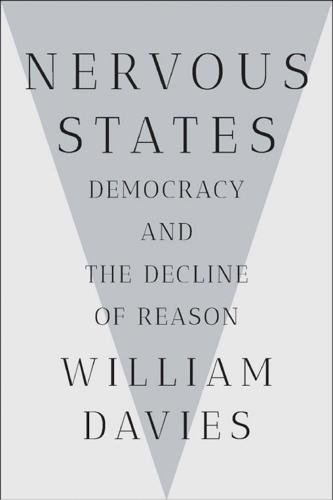
Nervous States: Democracy and the Decline of Reason
by
William Davies
Published 26 Feb 2019
Once-in-a-thousand-year storms are becoming familiar news items. The earth’s climate is already 0.85°C warmer than in 1880; only a rapid reduction in atmospheric greenhouse gases would avoid a rise to potentially catastrophic levels over the twenty-first century. Even the upper limits of warming aimed for by the Paris climate accord (c. 1.5–2°C above pre-industrial levels) could have an impact on sea levels and agriculture that would produce mass migrations, famines, and resource wars. Cities such as New York, with its 520-mile coastline, are severely imperiled by rising seas. Increased global temperature levels have already had a measurable impact on public health, from the impact of extreme heat on the elderly and the greater prevalence of dengue fever.6 If this weren’t frightening enough, resistance of diseases to drugs is rising steadily.
…
The facts alone won’t save us The election of an American president who believes “the concept of global warming was created by and for the Chinese in order to make US manufacturing non-competitive” was horrifying for anyone who trusted the evidence on climate change. Trump’s announcement that the United States would withdraw from the Paris climate accord, combined with his extravagant support for carbon-intensive industries, represented a reactionary force at a pivotal moment in the history of the earth’s climate. It did, however, serve as a reminder of how the most urgent scientific and political challenges are now entwined. How to respond?
…
A/B testing, 199 Acorn, 152 ad hominem attacks, 27, 124, 195 addiction, 83, 105, 116–17, 172–3, 186–7, 225 advertising, 14, 139–41, 143, 148, 178, 190, 192, 199, 219, 220 aerial bombing, 19, 125, 135, 138, 143, 180 Affectiva, 188 affective computing, 12, 141, 188 Agent Orange, 205 Alabama, United States, 154 alcoholism, 100, 115, 117 algorithms, 150, 169, 185, 188–9 Alsace, 90 alt-right, 15, 22, 50, 131, 174, 196, 209 alternative facts, 3 Amazon, 150, 173, 175, 185, 186, 187, 192, 199, 201 American Association for the Advancement of Science, 24 American Civil War (1861–5), 105, 142 American Pain Relief Society, 107 anaesthetics, 104, 142 Anderson, Benedict, 87 Anthropocene, 206, 213, 215, 216 antibiotics, 205 antitrust laws, 220 Appalachia, 90, 100 Apple, 156, 185, 187 Arab Spring (2011), 123 Arendt, Hannah, xiv, 19, 23, 26, 53, 219 Aristotle, 35, 95–6 arrogance, 39, 47, 50 artificial intelligence (AI), 12–13, 140–41, 183, 216–17 artificial video footage, 15 Ashby, Ross, 181 asymmetrical war, 146 atheism, 34, 35, 209 attention economy, 21 austerity, 100–101, 225 Australia, 103 Australian, 192 Austria, 14, 60, 128, 153–75 Austria-Hungary (1867–1918), 153–4, 159 authoritarian values, 92–4, 101–2, 108, 114, 118–19, 211–12 autocracy, 16, 20, 202 Babis, Andrej, 26 Bacon, Francis, 34, 35, 95, 97 Bank of England, 32, 33, 55, 64 Banks, Aaron, 26 Bannon, Steve, 21, 22, 60–61 Bayh–Dole Act (1980), 152 Beck Depression Inventory, 107 Berlusconi, Silvio, 202 Bernays, Edward, 14–15, 16, 143 “Beyond the Pleasure Principle” (Freud), 110 Bezos, Jeff, 150, 173 Big Data, 185–93, 198–201 Big Government, 65 Big Science, 180 Bilbao, Spain, 84 bills of mortality, 68–71, 75, 79–80, 81, 127 Birmingham, West Midlands, 85 Black Lives Matter, 10, 225 Blackpool, Lancashire, 100 blind peer reviewing, 48, 139, 195 Blitz (1940–41), 119, 143, 180 blue sky research, 133 body politic, 92–119 Bologna, Italy, 96 bookkeeping, 47, 49, 54 Booth, Charles, 74 Boston, Massachusetts, 48 Boyle, Robert, 48–50, 51–2 BP oil spill (2010), 89 brainwashing, 178 Breitbart, 22, 174 Brexit (2016–), xiv, 23 and education, 85 and elites, 33, 50, 61 and inequality, 61, 77 and NHS, 93 and opinion polling, 80–81 as self-harm, 44, 146 and statistics, 61 Unite for Europe march, 23 Vote Leave, 50, 93 British Futures, 65 Brooks, Rosa, 216 bullying, 113 Bureau of Labor, 74 Bush, George Herbert Walker, 77 Bush, George Walker, 77, 136 cadaverous research, 96, 98 call-out culture, 195 Calvinism, 35 Cambridge, Cambridgeshire, 85 University, 84, 151 Cambridge Analytica, 175, 191, 196, 199 Cameron, David, 33, 73, 100 cancer, 105 Capital in the Twenty-First Century (Piketty), 74 capital punishment, 92, 118 car accidents, 112–13 cargo-cult science, 50 Carney, Mark, 33 cartography, 59 Case, Anne, 99–100, 102, 115 Catholicism, 34 Cato Institute, 158 Cavendish, William, 3rd Earl of Devonshire, 34 Central Intelligence Agency (CIA), 3, 136, 151, 199 Center for Policy Studies, 164 chappe system, 129, 182 Charles II, King of England, Scotland, and Ireland, 34, 68, 73 Charlottesville attack (2017), 20 Chelsea, London, 100 Chevillet, Mark, 176 Chicago School, 160 China, 13, 15, 103, 145, 207 chloroform, 104 cholera, 130 Chongqing, China, 13 chronic pain, 102, 105, 106, 109 see also pain Churchill, Winston, 138 citizen science, 215, 216 civil rights movements, 21, 194 civilians, 43, 143, 204 von Clausewitz, Carl, 128–35, 141–7, 152 and defeat, 144–6 and emotion, 141–6, 197 and great leaders, 146–7, 156, 180–81 and intelligence, 134–5, 180–81 and Napoleon, 128–30, 133, 146–7 and soldiers, number of, 133–4 war, definition of, 130, 141, 193 climate change, 26, 50, 165, 205–7, 213–16 Climate Mobilization, 213–14 climate-gate (2009), 195 Clinton, Hillary, 27, 63, 77, 99, 197, 214 Clinton, William “Bill,” 77 coal mining, 90 cognitive behavioral therapy, 107 Cold War, 132, 133, 135–6, 137, 180, 182–4, 185, 223 and disruption, 204–5 intelligence agencies, 183 McCarthyism (1947–56), 137 nuclear weapons, 135, 180 scenting, 135–6 Semi-Automatic Ground Environment (SAGE), 180, 182, 200 space race, 137 and telepathy, 177–8 colonialism, 59–61, 224 commercial intelligence, 152 conscription, 127 Conservative Party, 80, 154, 160, 163, 166 Constitution of Liberty, The (Hayek), 160 consumer culture, 90, 104, 139 contraceptive pill, 94 Conway, Kellyanne, 3, 5 coordination, 148 Corbyn, Jeremy, 5, 6, 65, 80, 81, 197, 221 corporal punishment, 92 creative class, 84, 151 Cromwell, Oliver, 57, 59, 73 crop failures, 56 Crutzen, Paul, 206 culture war, xvii Cummings, Dominic, 50 currency, 166, 168 cutting, 115 cyber warfare, xii, 42, 43, 123, 126, 200, 212 Czech Republic, 103 Daily Mail, ix Damasio, Antonio, 208 Darwin, Charles, 8, 140, 142, 157, 171, 174, 179 Dash, 187 data, 49, 55, 57–8, 135, 151, 185–93, 198–201 Dawkins, Richard, 207, 209 death, 37, 44–5, 66–7, 91–101 and authoritarian values, 92–4, 101–2, 211, 224 bills of mortality, 68–71, 75, 79–80, 81, 89, 127 and Descartes, 37, 91 and Hobbes, 44–5, 67, 91, 98–9, 110, 151, 184 immortality, 149, 183–4, 224, 226 life expectancy, 62, 68–71, 72, 92, 100–101, 115, 224 suicide, 100, 101, 115 and Thiel, 149, 151 death penalty, 92, 118 Deaton, Angus, 99–100, 102, 115 DeepMind, 218 Defense Advanced Research Projects Agency (DARPA), 176, 178 Delingpole, James, 22 demagogues, 11, 145, 146, 207 Democratic Party, 77, 79, 85 Denmark, 34, 151 depression, 103, 107 derivatives, 168, 172 Descartes, René, xiii, 36–9, 57, 147 and body, 36–8, 91, 96–7, 98, 104 and doubt, 36–8, 39, 46, 52 and dualism, 36–8, 39, 86, 94, 131, 139–40, 179, 186, 223 and nature, 37, 38, 86, 203 and pain, 104, 105 Descartes’ Error (Damasio), 208 Devonshire, Earl of, see Cavendish, William digital divide, 184 direct democracy, 202 disempowerment, 20, 22, 106, 113–19 disruption, 18, 20, 146, 147, 151, 171, 175 dog whistle politics, 200 Donors Trust, 165 Dorling, Danny, 100 Downs Survey (1655), 57, 59, 73 doxing, 195 drone warfare, 43, 194 drug abuse, 43, 100, 105, 115–16, 131, 172–3 Du Bois, William Edward Burghardt, 74 Dugan, Regina, 176–7 Dunkirk evacuation (1940), 119 e-democracy, 184 Echo, 187 ecocide, 205 Economic Calculation in the Socialist Commonwealth (Mises), 154, 166 economics, 59, 153–75 Economist, 85, 99 education, 85, 90–91 electroencephalography (EEG), 140 Elizabethan era (1558–1603), 51 embodied knowledge, 162 emotion and advertising, 14 artificial intelligence, 12–13, 140–41 and crowd-based politics, 4, 5, 8, 9, 10, 15, 16, 21, 23–7 Darwin’s analysis, 8, 140 Descartes on, 94, 131 and experts, 53, 60, 64, 66, 90 fear, 11–12, 16–22, 34, 40–45, 52, 60, 142 Hobbes on, 39, 41 James’ analysis, 140 and markets, 168, 175 moral, 21 and nationalism, 71, 210 pain, 102–19 sentiment analysis, xiii, 12–13, 140, 188 and war, 124–6, 142 empathy, 5, 12, 65, 102, 104, 109, 112, 118, 177, 179, 197 engagement, 7, 219 England Bank of England founded (1694), 55 bills of mortality, 68–71, 75, 79–80, 81, 89, 127 civil servants, 54 Civil War (1642–51), 33–4, 45, 53 Elizabethan era (1558–1603), 51 Great Fire of London (1666), 67 hospitals, 57 Irish War (1649–53), 59 national debt, 55 Parliament, 54, 55 plagues, 67–71, 75, 79–80, 81, 89, 127 Royal Society, 48–52, 56, 68, 86, 208, 218 tax collection, 54 Treasury, 54 see also United Kingdom English Defense League, ix entrepreneurship, 149, 156, 162 environment, 21, 26, 50, 61, 86, 165, 204–7, 213–16 climate change, 26, 50, 165, 205–7, 213–16 flying insects, decline of, 205, 215 Environmental Protection Agency, 23 ether, 104 European Commission, 60 European Space Agency, 175 European Union (EU), xiv, 22, 60 Brexit (2016–), see under Brexit and elites, 60, 145, 202 euro, 60, 78 Greek bailout (2015), 31 immigration, 60 and nationalism, 60, 145, 146 quantitative easing, 31 refugee crisis (2015–), 60, 225 Unite for Europe march (2017), 23 Exeter, Devon, 85 experts and crowd-based politics, 5, 6, 23, 25, 27 Hayek on, 162–4, 170 and representative democracy, 7 and statistics, 62–91 and technocracy, 53–61, 78, 87, 89, 90 trust in, 25–33, 63–4, 66, 74–5, 77–9, 170, 202 violence of, 59–61 Expression of the Emotions in Man and Animal, The (Darwin), 8, 140 Exxon, 165 Facebook, xvi, 15, 201 advertising, 190, 192, 199, 219, 220 data mining, 49, 185, 189, 190, 191, 192, 198, 219 and dog whistle politics, 200 and emotional artificial intelligence, 140 as engagement machine, 219 and fake news, 199 and haptics, 176, 182 and oligarchy, 174 and psychological profiling, 124 and Russia, 199 and sentiment analysis, 188 and telepathy, 176–8, 181, 185, 186 and Thiel, 149, 150 and unity, 197–8 weaponization of, 18 facial recognition, 13, 188–9 failed states, 42 fake news, 8, 15, 199 Farage, Nigel, 65 fascism, 154, 203, 209 fear, 11–12, 16–22, 34, 40–45, 52, 60, 142 Federal Bureau of Investigation (FBI), 137 Federal Reserve, 33 feeling, definition of, xii feminism, 66, 194 Fifth Amendment, 44 fight or flight, 111, 114 Financial Times, 15 first past the post, 13 First World War, see World War I Fitbit, 187 fixed currency exchange rates, 166 Florida, Richard, 84 flu, 67, 191 flying insects, 205, 215 France censuses, 66, 73 conscription introduced (1793), 127 Front National, 27, 61, 79, 87, 92 Hobbes in (1640–51), 33–4, 41–2 Le Bon’s crowd psychology, 8–12, 13, 15, 16, 20, 24, 25, 38 life expectancy, 101 Napoleonic Wars (1803–15), see Napoleonic Wars Paris climate accord (2015), 205, 207 Paris Commune (1871), 8 Prussian War (1870–71), 8, 142 Revolution (1789–99), xv, 71, 126–9, 141, 142, 144, 204 statistics agency established (1800), 72 unemployment, 83 Franklin, Benjamin, 66 free markets, 26, 79, 84, 88, 154–75 free speech, 22, 113, 194, 208, 209, 224 free will, 16 Freud, Sigmund, 9, 14, 44, 107, 109–10, 111, 112, 114, 139 Friedman, Milton, 160, 163, 166 Front National, 27, 61, 79, 87, 92, 101–2 full spectrum warfare, 43 functional magnetic resonance imaging (fMRI), 140 futurists, 168 Galen, 95–6 Galilei, Galileo, 35 gambling, 116–17 game theory, 132 gaming, 193–4 Gandhi, Mohandas, 224 gate control theory, 106 Gates, Sylvester James “Jim,” 24 Gavotti, Giulio, 143 geek humor, 193 Gehry, Frank, 84 Geller, Uri, 178 geometry, 35, 49, 57, 59, 203 Gerasimov, Valery, 123, 125, 126, 130 Germany, 34, 72, 137, 205, 215 gig economy, 173 global financial crisis (2007–9), 5, 29–32, 53, 218 austerity, 100–101 bailouts, 29–32, 40, 42 and gross domestic product (GDP), 76 as “heart attack,” 57 and Obama administration, 158 and quantitative easing, 31–2, 222 and securitization of loans, 218–19 and statistics, 53, 65 and suicide, 101 and unemployment, 82 globalization, 21, 78, 84, 145, 146 Gonzales, Alberto, 136 Google, xvi, 174, 182, 185, 186, 191, 192 DeepMind, 218 Maps, 182 Transparency Project, 198 Government Accountability Office, 29 Graunt, John, 67–9, 73, 75, 79–80, 81, 85, 89, 127, 167 Great Fire of London (1666), 67 great leaders, 146–8 Great Recession (2007–13), 76, 82, 101 Greece, 5, 31, 101 Greenpeace, 10 Grenfell Tower fire (2017), 10 Grillo, Beppe, 26 gross domestic product (GDP), 62, 65, 71, 75–9, 82, 87, 138 guerrillas, 128, 146, 194, 196 Haldane, Andrew, 32 haptics, 176, 182 Harvey, William, 34, 35, 38, 57, 96, 97 hate speech, 42 von Hayek, Friedrich, 159–73, 219 health, 92–119, 224 hedge funds, 173, 174 hedonism, 70, 224 helicopter money, 222 Heritage Foundation, 164, 214 heroin, 105, 117 heroism and disruption, 18, 146 and genius, 218 and Hobbes, 44, 151 and Napoleonic Wars, 87, 127, 142 and nationalism, 87, 119, 210 and pain, 212 and protection, 202–3 and technocracy, 101 and technology, 127 Heyer, Heather, 20 Hiroshima atomic bombing (1945), 206 Hobbes, Thomas, xiii, xvi, 33–6, 38–45, 67, 147 on arrogance, 39, 47, 50, 125 and body, 96, 98–9 and Boyle, 49, 50, 51 on civil society, 42, 119 and death, 44–5, 67, 69–70, 91, 98–9, 110, 151, 184 on equality, 89 on fear, 40–45, 52, 67, 125 France, exile in (1640–51), 33–4, 41 on geometry, 35, 38, 49, 56, 57 and heroism, 44, 151 on language, 38–9 natural philosophy, 35–6 and nature, 38, 50 and Petty, 56, 57, 58 on promises, 39–42, 45, 148, 217–18 and Royal Society, 49, 50, 51 on senses, 38, 49, 147 and sovereign/state, 40–45, 46, 52, 53, 54, 60, 67, 73, 126, 166, 217, 220 on “state of nature,” 40, 133, 206, 217 war and peace, separation of, 40–45, 54, 60, 73, 125–6, 131, 201, 212 Hobsbawm, Eric, 87, 147 Hochschild, Arlie Russell, 221 holistic remedies, 95, 97 Holland, see under Netherlands homeopathy, 95 Homer, xiv Hungary, 20, 60, 87, 146 hysteria, 139 IBM, 179 identity politics, 208, 209 Iglesias Turrión, Pablo, 5 imagined communities, 87 immigration, 60, 63, 65, 79, 87, 145 immortality, 149, 183–4, 224 in-jokes, 193 individual autonomy, 16 Industrial Revolution, 133, 206 inequality, 59, 61, 62, 76, 77, 83, 85, 88–90 inflation, 62, 76, 78, 82 infographics, 75 information theory, 147 information war, 43, 196 insurance, 59 intellectual property, 150 intelligence, 132–9 intensity, 79–83 International Association for the Study of Pain, 106 International Monetary Fund (IMF), 64, 78 Internet, 184–201, 219 IP addresses, 193 Iraq War (2003–11), 74, 132 Ireland, 57, 73 Irish Republican Army (IRA), 43 “Is This How You Feel?
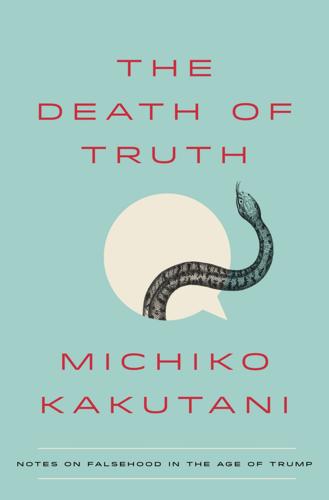
The Death of Truth: Notes on Falsehood in the Age of Trump
by
Michiko Kakutani
Published 17 Jul 2018
And it was a reminder that in Orwell’s dystopia in 1984 there is no word for “science,” because “the empirical method of thought, on which all the scientific achievements of the past were founded,” represents an objective reality that threatens the power of Big Brother to determine what truth is. In addition to announcing that it was withdrawing from the Paris climate accord (after Syria signed on, the United States was left as the lone country repudiating the global agreement), the Trump administration vowed to terminate President Obama’s Clean Power Plan and reverse a ban on offshore oil and gas drilling. Scientists were dismissed from government advisory boards, and plans were made to cut funding for an array of research programs in such fields as biomedicine, environmental science, engineering, and data analysis.
…
” * * * — The migration of postmodern ideas from academia to the political mainstream is a reminder of how the culture wars—as the vociferous debates over race, religion, gender, and school curricula were called during the 1980s and 1990s—have mutated in unexpected ways. The terrorist attacks of 9/11 and the financial crisis of 2008, it was thought, had marginalized those debates, and there was hope, during the second term of President Barack Obama, that the culture wars in their most virulent form might be winding down. Health-care legislation, the Paris climate accord, a stabilizing economy after the crash of 2008, same-sex marriage, efforts to address the inequities of the criminal justice system—although a lot of essential reforms remained to be done, many Americans believed that the country was at least set on a progressive path. In his 2015 book, A War for the Soul of America, the historian Andrew Hartman wrote that the traditionalists who “resisted the cultural changes set into motion during the sixties” and “identified with the normative Americanism of the 1950s” seemed to have lost the culture wars of the 1980s and 1990s.
…
“science-based” and “evidence-based”: Lena H. Sun and Juliet Eilperin, “CDC Gets List of Forbidden Words: Fetus, Transgender, Diversity,” Washington Post, Dec. 15, 2017. “the empirical method of thought”: George Orwell, 1984 (New York: Harcourt, Brace, 1949), 193. In addition to announcing: Lisa Friedman, “Syria Joins Paris Climate Accord, Leaving Only U.S. Opposed,” New York Times, Nov. 7, 2017. the Trump administration vowed: Lisa Friedman, “Expect Environmental Battles to Be ‘Even More Significant’ in 2018,” New York Times, Jan. 5, 2018. Scientists were dismissed: “President Trump’s War on Science,” New York Times, Sept. 9, 2017; “Attacks on Science,” Union of Concerned Scientists, ucsusa.org; Tanya Lewis, “A Year of Trump: Science Is a Major Casualty in the New Politics of Disruption,” Scientific American, Dec. 14, 2017; Joel Achenbach and Lena H.
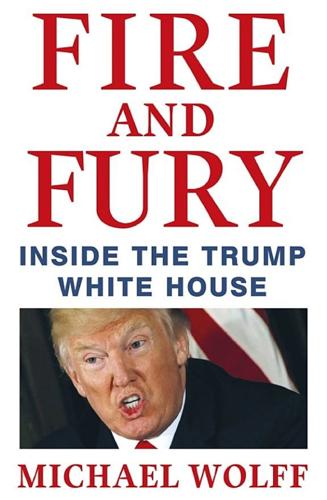
Fire and Fury: Inside the Trump White House
by
Michael Wolff
Published 5 Jan 2018
As Jared and Ivanka were taking a victory lap, Trump signed Executive Order 13783, a change in environmental policy carefully shepherded by Bannon, which, he argued, effectively gutted the National Environmental Policy Act, the 1970 law that served as the foundation of modern environmental protections and that required all executive agencies to prepare environmental impact statements for agency actions. Among other impacts, EO 13783 removed a prior directive to consider climate change—a precursor to coming debates on the country’s position regarding the Paris Climate Accord. On April 3, Kushner unexpectedly turned up in Iraq, accompanying Gen. Joseph Dunford, chairman of the Joint Chiefs of Staff. According to the White House press office, Kushner was “traveling on behalf of the president to express the president’s support and commitment to the government of Iraq and U.S. personnel currently engaged in the campaign.”
…
By the next day, he would be packing up his little office, and on Monday, when Trump would return to a refurbished West Wing—a paint job, new furniture, and new rugs, its look tilting toward the Trump Hotel—Steve Bannon would be back on Capitol Hill at the Breitbart Embassy, still, he was confident, the chief strategist for the Trump revolution. EPILOGUE: BANNON AND TRUMP On a sweltering morning in October 2017, the man who had more or less single-handedly brought about the U.S. withdrawal from the Paris climate accord, stood on the steps of the Breitbart town house and said, with a hearty laugh, “I guess global warming is real.” Steve Bannon had lost twenty pounds since his exit from the White House six weeks before—he was on a crash all-sushi diet. “That building,” said his friend David Bossie, speaking about all White Houses but especially the Trump White House, “takes perfectly healthy people and turns them into old, unhealthy people.”
…
INDEX Abbas, Mahmoud, 231, 299 Abe, Shinzō, 106 Abraham Lincoln, USS, 182 Abramovich, Roman, 80 Adelson, Sheldon, 6, 141–43, 178, 289, 309 Afghanistan, 42, 263–68, 275–76 Agalarov, Aras, 254 Agenda, The (Woodward), 116 Ailes, Beth, 1, 4, 223–24 Ailes, Roger, 1–8, 11, 24, 26, 57, 59–60, 147, 164, 178–79, 195–98, 210, 212, 222–23 Alabama, 301–3 Al Shayrat airfield strike, 193–94 alt-right, 59, 116, 121, 128–29, 137–38, 174, 180, 296 American Prospect, 297 Anbang Insurance Group, 211 anti-Semitism, 140–44, 296 Anton, Michael, 105–6, 185, 229 Apprentice, The (TV show), 30, 76, 92, 109, 200 Arif, Tevfik, 100 Armey, Dick, 81 Arthur Andersen, 278 Art of the Deal, The (Trump and Schwartz), 22 Assad, Bashar al-, 183, 190 Atlantic City, 30, 99, 210 Atwater, Lee, 57 Australia, 78 Ayers, Nick, 240 Azerbaijan, 254 Bahrain, 231 Baier, Bret, 159–60 Baker, James, 27, 34 Baker, Peter, 277 Bannon, Steve, 185, 209, 247 Afghanistan and, 263–68 agenda of, in White House, 115–21, 275–77 agenda of, post-firing, 301–10 alt-right and, 137–38 background of, 55–60 campaign and, 3, 12–13, 17–18, 55, 86, 112–13, 201 Charlottesville and, 294–96 China and, 7–8, 297 Cohn and, 144, 146, 186 Comey firing and, 169–70, 211–15, 217–18, 232–33, 245–46, 261 CPAC and, 126–34 eve of inauguration and, 4–10 first weeks of presidency and, 52–55, 60–65, 67–70 Flynn and, 95, 103, 106 immigration and, 61–65, 77, 113 inauguration and, 42–43, 148 influence of, 70, 85, 108–10, 188 isolationism of, 227 Israel and, 140–43 Ivanka and, 146–48, 186–87, 211, 218–19, 221, 257 Jarvanka vs., 140, 174–82, 235–39, 243, 257, 261–62, 272, 274, 277, 280–81, 289–91 Kelly and, 287–91, 294–97 Kushner and, 69–70, 72, 77, 87, 110, 132, 134, 140–48 Kuttner call and firing of, 297–300, 307 media and, 38, 90–91, 93, 195–97, 206–9, 222 NSC and, 103, 176, 190–92 Obamacare and, 165–67, 170–72, 175 Paris Climate Accord and, 238–39 Pence and, 124 Priebus and, 33–34, 110 role of, in early presidency, 31–35 Russia investigation and, 7, 95, 97, 101, 154–55, 157, 170, 211, 233–46, 254–55, 257, 260–62, 278–81, 308 Ryan and, 161–63 Saudi Arabia and, 229–30 Scaramucci and, 268, 271, 274, 277, 281–85 Sessions and, 155, 241–42, 277–78 Syria and, 190–94 Trump on, 122–23 Trump pressured to fire, 173–82 Trump’s personality and, 21, 23, 35, 45, 47–48, 148–49, 158 Trump’s Times interview and, 277–78 White House appointments and, 4, 36, 86–87, 89, 189, 285 Barra, Mary, 88 Barrack, Tom, 27–29, 33, 42, 85, 233, 240 Bartiromo, Maria, 205 Bass, Edward, 56 Bayrock Group, 100–102 Bedminster Golf Club, 165, 213–14, 216, 287–94, 297, 302, 307 Beinart, Peter, 297 Benghazi, 97 Berkowitz, Avi, 143 Berlusconi, Silvio, 100 Berman, Mark, 78 Best and the Brightest, The (Halberstam), 53–54 Bezos, Jeff, 35 Biosphere 2, 56 Blackstone Group, 35, 78, 87, 298 Blackwater, 265 Blair, Tony, 156–58, 228 Blankfein, Lloyd, 144 Bloomberg, Michael, 117 Boehner, John, 26, 161 Boeing, 88 Bolton, John, 4–5, 189 border wall, 77–78, 228, 280, 303 Bossie, David, 58, 144, 177, 234, 237, 301 Bowles, Erskine, 27 Boyle, Matthew, 298–300 Boy Scouts of America, 284 Brady, Tom, 50 Brand, Rachel, 279 Breitbart, Andrew, 58–59 Breitbart News, 2, 32, 58–59, 62, 121, 126–29, 138, 160–62, 167, 179–80, 196, 207–8, 237, 266, 275, 297–98, 309 Brennan, John, 6, 41 Brexit, 5 Britain, 70, 157 Brooks, Mel, 15 Bryan, William Jennings, 45 Brzezinski, Mika, 66–69, 121, 176, 247–49 Brzezinski, Zbigniew, 66 Buckley, William F., 127 Bush, Billy, 10, 13–14, 34, 86, 96, 161 Bush, George H.
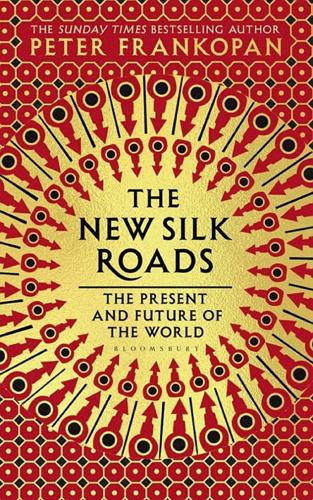
The New Silk Roads: The Present and Future of the World
by
Peter Frankopan
Published 14 Jun 2018
A Budget Blueprint to Make America Great Again’.10 As he had promised during the election, Trump promptly set about pulling out of multiple agreements that the previous administration had signed up to, detaching the United States from the international mainstream in the process. This included signing an order to ‘permanently withdraw’ from the Trans-Pacific Partnership on his first day in office, promising that this was a necessary step if he was to ‘promote American industry, protect American workers, and raise American wages’.11 Then there was the Paris Climate Accord, which Trump described as ‘simply the latest example of Washington entering into an agreement that disadvantages the United States to the exclusive benefit of other countries, leaving American workers – who I love – and taxpayers to absorb the cost in terms of lost jobs, lower wages, shuttered factories, and vastly diminished economic production’.
…
For America First, Sarah Churchwell, Behold, America: A History of America First and the American Dream (London, 2018). 11White House, Presidential Memorandum Regarding Withdrawal of the United States from the Trans-Pacific Partnership Negotiations and Agreement, 23 January 2017. 12White House, Statement by President Trump on the Paris Climate Accord, 1 June 2017. 13White House, ‘Executive Order Protecting the Nation from Foreign Terrorist Entry into the United States’, 27 January 2017. 14White House, ‘Remarks by President Trump on the Policy of the United States Towards Cuba’, 16 June 2017. 15Shawn Donnan, ‘Is there political method in Donald Trump’s trade madness?’
…
R. here Macron, Emmanuel here, here Maio, Luigi di here Major, John here Malaysia here, here, here, here Maldives here, here Mandela, Nelson here Mao Zedong here, here Mattis, James here, here, here, here, here May, Theresa here Milanović, Branko here Mirziyoyev, Shavkat here Mittal, Lakshmi here Mnuchin, Steve here, here Modi, Narendra here Mohammad bin Salman, Prince here, here, here Mohammadi, Ebrahim here Moshiri, Farhad here Mugabe, Robert here Mumbai terrorist attacks here Myanmar here, here, here, here, here, here Nabilllina, Elvira here Nagel, Yaakov here Nakasone, Lt General Paul here nanotechnology here NATO here, here, here, here Navarro, Peter here, here al Nayhan, Abdullah bin Zayed here al Nayhan, Mansour bin Zayed here Nazarbayev, Nursultan here, here Netanyahu, Benjamin here New Zealand here, here, here, here, here Nicholson, General John here Nike here, here North Korea here, here, here, here, here Northern Powerhouse here Nye, Joseph here Obama, Barack here, here, here Obasanjo, Olusegun here oil and gas prices here, here, here, here oil reserves here Oman here, here opium poppies here Orbán, Viktor here Ottoman Empire here Pakistan China and here, here, here, here, here, here intimidation of journalists here military exercises here relations with China here relations with India here, here relations with Russia here retail market here water resources here see also TAPI pipeline Panama here, here Paris Climate Accord here Parrikar, Manohar here Pence, Mike here, here Peru here Philippines, China and here Piraeus port here Pohiva, Akalisi here Poland, judicial reforms here Polimeks here Pompeo, Mike here, here, here, here, here, here Porter, Lisa here Prabal Dostyk exercises here press freedom here property prices here Putin, Vladimir here, here, here, here, here, here, here, here, here, here, here, here meeting with Trump here Pyne, Christopher here Qatar, relations with Saudi Arabia here Qatar Airways here, here quantum computing here Radiohead here Rahmon, Emomali here rare earths here Ravat, General Bipin here Regional Comprehensive Economic Partnership here Rice, Susan here Richthofen, Ferdinand von here RIMPAC exercise here robotics here Rosneft here, here Ross, Wilbur here Rouhani, Hassan here, here, here, here, here, here rules-based international order here, here Russia annexation of Crimea here, here, here, here crackdown on corruption here and Djibouti here intervention in Ukraine here, here, here, here military exercises here, here relations with China here, here relations with India here relations with Iran here relations with Saudi Arabia here relations with Turkey here, here technology development here and UK foreign policy here US intelligence and here and US foreign policy here Rwanda here S-500 air defence system here Safari, Mehrdad here Salman, King here São Tomé e Príncipe here Sarajevo here Saudi Arabia and Djibouti here reforms and arrests here relations with China here relations with Iran here relations with Israel here and US foreign policy here Vision 2030 plan here Seely, Bob here Senkaku Islands here Serbia here Sessions, Jeff here Shanghai Cooperation Organisation here, here, here Sherzai, Gul Agha here silicon here Siliguri Corridor here Silk Roads (the term) here Singapore here smart cities here Sochi Winter Olympics here Soleimani, Major General Qasem here, here Solomon Islands here Somalia here, here, here South China Sea here, here, here, here, here, here South Korea here Soviet Union here, here, here, here, here, here Soylu, Suleyman here space race here Space-X here Srebrenica massacre here Stalingrad, Battle of here Starr, S.
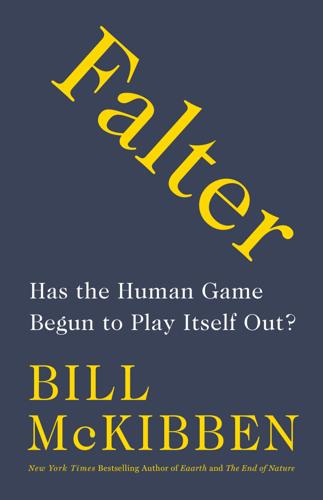
Falter: Has the Human Game Begun to Play Itself Out?
by
Bill McKibben
Published 15 Apr 2019
Trump, his news diet centered on the Fox News cable network that the climate deniers had so assiduously cultivated, believed that global warming was a “hoax invented by the Chinese” to cripple American manufacturing. (He further believed that polar ice caps “are at a record level.”)15 As a result, he pulled America out of the Paris climate accords, meaning that the nation that had poured the most carbon into the planet’s atmosphere was now the only country not willing even to pretend to take action to stop the crisis. Meanwhile, at Exxon, business continued as usual. Tillerson’s successor, Darren Woods, fended off shareholder pressure by agreeing to have his executives write a report disclosing the company’s “climate risk.”
…
It “wouldn’t have been child’s play,” but “well-understood incremental regulatory reforms and well-designed carbon trading or pricing systems” would have done the trick. But now, rushing up on 2020, and after three decades of soaring carbon emissions, meeting even the modest targets of, say, the Paris climate accord has become nearly impossible. “The path now is steep as hell—the new curve we’re on demands downright disruptive emissions cuts” of as much as 50 percent a decade. As the geophysicist Michael Mann put it, “what would have been a bunny slope was now a double black diamond.” That means, Steffen explained, that “climate action can no longer be orderly, gradual, or even continuous with our expectations.”18 By early 2018, the view from the analysts calculating transition efforts around the world was stark.
…
The new head of the Office of Energy Efficiency and Renewable Energy, for instance, had gained experience for his post by urging Americans to stockpile incandescent lightbulbs from Amazon on the grounds that an intrusive federal government would next be banning night baseball to save electricity.32 If you tried to figure out the worst way to respond to climate change, all this is what it would look like. Actually, the worst possible plan would also include trying to squash action in every other country, too. And that’s what the entire government-hating network managed to achieve in 2017, when President Trump pulled the United States out of the Paris climate accords. It was as shameful a moment as any in our recent history: the country that produces more carbon than any other announcing that it was now the only country on earth not willing to make even a modest international commitment to solving climate change. As the Washington Post made clear in a lengthy special report, getting to that moment required a “two-decade crusade” by precisely the interbred group of antigovernment fossil fuel zealots we’ve already met.

Life on the Rocks: Building a Future for Coral Reefs
by
Juli Berwald
Published 4 Apr 2022
BP, perpetrator of the largest marine oil spill in U.S. history, saw revenues fall $16.8 billion in the second quarter of 2020. So BP cut oil and gas production by 40 percent and upped its commitment to low-carbon energy technologies tenfold. The Biden administration, during its first week in office, rejoined the Paris Climate Accords and issued a slew of executive orders addressing climate change. We saw that we have power over our atmosphere. It’s not too big. In our seas, perhaps that shift had also started happening. At the end of 2020, significant efforts to support the health of our oceans were announced, again too quietly for most of us to notice amid the pandemic and the contentious presidential election.
…
GO TO NOTE REFERENCE IN TEXT BNP Paribas: Based in France, it is the world’s eighth-largest bank by total assets. With a tagline, “The bank for a changing world,” it touts a strong strategy in line with the United Nation’s Sustainable Development Goals. However, since the signing of the Paris Climate Accords, BNP has financed roughly $120 billion in fossil fuel projects, more than any other bank in the EU. Damian Carrington, “Big Banks’ Trillion-Dollar Finance for Fossil Fuels ‘Shocking,’ Says Report,” The Guardian, March 24, 2021, https://www.theguardian.com/environment/2021/mar/24/big-banks-trillion-dollar-finance-for-fossil-fuels-shocking-says-report.
…
See also Great Barrier Reef Australian Institute of Marine Science, 42, 262 autoimmune disease, 76–77 axial polyps, 168 B baboons, 45 bacteria and coral farming techniques, 187 and cryopreservation of coral, 192 and living rocks, 95 and settlement of coral larvae, 213 and stony coral tissue loss disease, 102 strep infections and PANDAS, 76, 78–79 and symbiosis with corals, 79–82, 161, 213 Badi (Indonesian island), 135, 142 Bahamas, 5, 186, 216–19, 225, 231 Bali, Indonesia and coral bleaching events, 64 and coral restoration efforts, 146, 155, 164–65, 169–70, 176, 286 and coral trade, 164–65, 166–71 earthquake, 174–75 family trip to, 125, 174–77 and Indonesian Through Flow, 131 Bali Aquarium, 165 Bay, Line, 18, 271–75 Bayahibe, Dominican Republic, 193, 204–5, 208, 211, 212 “Beat It (the Heat): Combating Stress in Coral Reefs” (symposium), 71–74 Belize, 12–13, 93, 103, 181–82 Ben (son) attitudes on environmental issues, 250 diving trips, 291–92 family travels, 104, 174–75 and Isy’s struggles with OCD, 214–15, 251–52 and onset of COVID-19 pandemic, 254, 256 benefits of corals and aquarium trade, 94–97, 123, 130, 159–65, 171–73 economic value, 7, 11, 159–65, 181–82, 185, 238 “ecosystem services” approach to determining, 126–27 environmental, 7, 11, 184, 285 fishery support, 15, 123, 135–38 flood and storm protection, 7, 11, 104, 126, 171, 218–19, 241–42 Bermuda, 184 Biden, Joe, 288 biodiversity and Acropora genus, 167 and aesthetic value of corals, 7 and algal symbiosis, 69 and aquarium trade, 159 in Caribbean, 93–94 in Coral Triangle, 42, 117–18 and cryopreservation of corals, 188–92 in Dominican Republic, 202 and economic value of coral reefs, 127 ethnic diversity parallels, Scott on, 266 and 50 Reefs study, 231, 233 of Florida reef, 22 of Flower Garden Banks National Marine Sanctuary, 292–93 and genetic mixing, 44 and Indonesian Through Flow, 131, 167 and land restoration projects, 185 and Low Isles expeditions, 59–60 measuring reef health, 143 monoculture threat, 96 and stony coral tissue loss disease, 225 Black, Kristina, 265 Black Lives Matter, 267 Blanco, Macarena, 188, 193, 204–5 blast fishing, 23, 139–42, 232, 240, 313n141 bleaching of corals, 6–7 in Arabian Gulf, 62 and bacterial infections, 80–81 and Chasing Coral, 84 and Coral Reef Watch, 253 early research on, 55–60 etymology of term, 267, 268 in Florida and Caribbean, 62–63, 65, 94 at Flower Garden Banks National Marine Sanctuary, 292 and genetics research, 273–76, 277 global bleaching events, 6–7, 25, 64–67, 132 Great Barrier Reef, 11, 65, 66, 254, 258, 259–60 Gulf of Mexico, 107 in Hawai`i, 61–66 origins of research on, 61–66 patchiness of, 270 in Red Sea, 65 and reef acoustics, 146 satellite imagery, 233 in Seychelles, 240 and storm damage, 218 Bloomberg Philanthropies, 231 blue bonds, 237, 239–40 bluehead wrass (Thalassoma bifasciatum), 196 BNP Paribas, 284, 322n284 Bonaire, 88 Bontasua, 135–38, 148–54 boulder corals, 60, 64, 93, 96–98, 143, 199–200 BP, 288 branching corals and aquarium trade, 161, 164 and changing environmental conditions, 60 and coral farming, 168–69 and Indonesian restoration sites, 138, 143 and natural history collections, 42 propagation by fragmentation, 96 and reef tract disease, 21 and restoration projects, 182 and storm damage, 218 varied morphology of, 43–44 See also elkhorn corals; staghorn corals branding programs, 25–27, 147, 226 Brandt, Karl Andreas Heinrich, 67, 305n67 BRCA gene, 273 Brown, Margaret “Molly,” 235 Bruckner, Andrew, 101 Buddy Dive Resort, 181 Bugis people, 128–29 bumphead parrotfish, 176 C cactus coral (Mycetophyllia lamarckiana), 209 calcium carbonate, 50–52, 65, 86 Caldiera, Ken, 250 Cannery Row (Steinbeck), 116 carbon emissions and algae/coral symbiosis, 38 author’s offset practices, 300n9 and cloud-brightening proposals, 20 and coral bleaching, 7, 73 and geoengineering proposal, 248–50 impact of COVID-19 pandemic, 262 methane compared with, 247 Montreal Protocol on, 300n9 and ocean acidification, 50–53 and Paris Climate Accords, 288, 322n284 reduction efforts, 14 and Tragedy of the Commons model, 116 Caribbean and coral bleaching, 62, 64, 65 and evolution of corals, 93–94 reef damage in, 5–6, 94, 218–19 and tourism industry, 181–82 and tropical storms/hurricanes, 216–17 white band disease, 94 Carnegie Institute, 55 Cayman Islands, 65, 108–9 Center for Tropical Island Biodiversity Studies, 266 Centers for Disease Control and Prevention (CDC), 87, 256 Chalias, Vincent, 165, 166–71, 314n171 Chasing Coral (film), 24, 26, 27, 84 Chasing Ice (film), 26 China, 119, 162 chlorofluorocarbons (CFCs), 300n9 chlorophyll, 36, 38, 39, 68 chloroplasts, 82 Chozin, Muhammad, 141 Cladocopium, 69–70 clams, 52 Clean Air and Water Acts, 62, 116 climate change and global warming and coral bleaching, 6–7, 25, 64–67, 132 and coral genetics research, 34–35 Coral Reef Watch program, 253 and coral spawning, 131 and coral symbionts, 70 and ethical issues of coral restoration, 230 and 50 Reefs study, 231 financial impacts of, 240–42 and geoengineering proposals, 9, 18–20, 247–55, 258–59, 261–62 and Great Barrier Reef damage, 17 and heat waves, 291 and lessons of coronavirus pandemic, 287–88 and prioritization of environmental efforts, 131–32, 226–28, 234–35, 285, 289 and Reef Futures meeting, 9 and reticulated evolution, 45 See also carbon emissions climate change mitigation, 12, 18–20 cloud brightening and dust storms, 281–82 initial testing program, 251, 252–54, 258–59, 261–62 promise of, 300n17 and Reef Futures meeting, 19–20 viability of, 249–50 Wadhams on, 247–49 clown fish (Amphiprioninae), 143, 196 Club Méditerranée (Club Med), 203 Cocos Island, 48 Coles, Steve, 62, 66 Colombia, 64 colonialism, legacy of, 140–41, 203, 266 Columbia University, 273–74 Columbus, Christopher, 202 conservation ethic, 110 container ships, 99 continental drift, 47–48, 93 Convention on International Trade in Endangered Species (CITES), 162–64 Cook Islands, 64 coral atolls, 47–49, 52, 57, 134, 240 coral farming, 166–73 and aquarium trade, 159–65 and hospitality industry, 181–84, 204 and Reef Futures meeting, 12, 14, 20 and reef restoration, 94–98 and spawning, 205–9 See also aquarium trade Coral Probiotic Hypothesis, 80–82 Coral Reef Conservation Program, 102 Coral Reef Watch program, 253 Coral Restoration Consortium, 10–16 coral restoration efforts algae’s role in, 149, 188, 212–13 at Bontasua, 135–37, 148–51 and climate change, 231 cost of, 127 criteria for, 15 and financial innovations, 239–42 and genetics research, 35 Indonesia’s advantages, 131–32, 167, 176 and Mars, Inc., 122–24, 128–32 and measuring reef health, 143 and Reef Futures meeting, 11–12, 28–30 scale of, 17–22 and tetrapod structures, 211–14 See also coral farming; funding for coral research and restoration Coral Restoration Foundation, 96, 98, 225, 228, 284 Coral Sea, 253 coral trade.
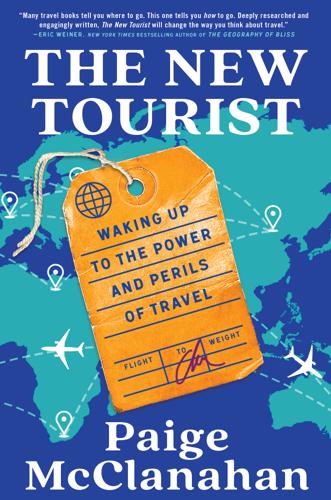
The New Tourist: Waking Up to the Power and Perils of Travel
by
Paige McClanahan
Published 17 Jun 2024
But even if all of humanity—the airlines included—stopped emitting greenhouse gases tomorrow, we’d still see a huge amount of warming over the next several decades. A 2021 study published in Nature Climate Change concluded that the greenhouse gases that we’ve already emitted could lead to as much as 4.1 degrees Fahrenheit worth of warming before the end of this century, which is beyond even the weaker goal of the Paris Climate Accord.37 For children born in the latter decades of this century, glaciers will be like dodo birds or covered wagons—things you learn about in history class. Things that have no place in the world you know. With all but a few exceptions, in just a couple of generations, the living, breathing glaciers of the world will be gone
…
K., 206–7 China, 8, 134, 177 Chisholm Trail, 133–34 CIA, 5, 6 city brands, 77 Claret, Benjamin, 128–29, 131–33, 155, 176 Claret, Georges, 129 climate change, 51, 52, 132, 134–48, 153, 177, 189, 190 aviation’s impact on, 140–48 carbon offsets and, 141–43 contrails and, 147 coral reefs and, 135–36 glaciers and, see glaciers last-chance tourism and, 136–39 net-zero carbon emissions goal and, 143, 146, 147 Paris Climate Accord and, 148 rockfall and, 152 CNN, 20, 29, 136, 189 cognitive dissonance, 137–38 Colau, Ada, 122–23, 125 Cold War, 8, 80, 146, 202–3 Colombia, 27, 29, 79, 87 colonialism, 46, 64–65 Hawai‘i and, 115, 118, 165, 216 Colosseum, 188 communities, tourism’s effect on, 99–126 in tourist traps, 177, 182 community tourism, 112 Compagnie des Guides de Chamonix, 151, 152 consolidation phase, in tourism life cycle, 94 contrails, 147 Cook, James, 114 Cook, Thomas, 199, 200, 202 coral reefs, 135–36 Costa Rica, 87 Council for Native Hawaiian Advancement, 91, 114–16 Council of Europe, 85–86 COVID-19 pandemic, 35, 39, 44, 46, 57, 63, 76, 89, 90, 92, 93, 113, 126, 141, 177, 188, 190, 201 Disneyland Paris and, 169, 170, 172, 173 Croatia, 87 Crowther, Geoff, 16 culture, in soft power, 69 Cummings, Joe, 16–20, 23, 26–27, 32 Daily Beast, 45 Dalton, Bill, 12, 28, 33 death, 209 Deep Decarbonization Initiative, 141 De Fries, John, 89–93, 96–98, 115, 164, 212, 214 Delta Air Lines, 147 Denver, CO, 124 Department of Hawaiian Home Lands (DHHL), 118 development phase, in tourism life cycle, 94 DiCaprio, Leonardo, 24 Diriyah, 194 Disney, 90 Disney theme parks, 64, 171 Disneyland Paris, 169–75, 177 Doha, 79 doom tourism (last-chance tourism), 136–39 Dostoevsky, Fyodor, 200 Do Travel Writers Go to Hell?
…
Howard, 5 hydrogen-powered aircraft, 143, 146 iambassador, 60–61 Iceland, xvi, 53–58, 79–86, 110, 176, 185 Bieber in, 55–57, 62, 63, 65, 82, 176 Council of Europe summit in, 85–86 economy of, 58, 59, 80–82, 85, 86 glaciers in, 134, 135 grassroots tourism campaign for, 57–61, 81–82, 86 Reid in, 79–85, 176, 196 Reykjavík, 79–82, 86, 124, 176–77 soft power and, 85 volcano eruption in, 58, 80, 86 Icelandair, 81, 82 Iceland Hour, 59 Icelandic Tourist Board, 57 Inca Trail, 12 India, 1, 2, 9, 27, 87, 113 Kerala, see Kerala India (Lonely Planet), 16 Indian Territory, 133 Indonesia, 11 influencers, 61–62, 66 Innocents Abroad, The (Twain), 200 Instagram, 41–42, 45–52, 59, 62–66, 205 International Association of Antarctica Tour Operators, 139 International Monetary Fund, 82 International Center for Responsible Tourism, 111–12 International Tourist Year, 203 internet, 28, 54 travel guides on, 30–31 travel services on, 42–44 see also social media Internet Brands, 30–31 involvement phase, in tourism life cycle, 94 Iranian Revolution, 9 Iron Curtain, 8, 203 Islam, 191 Istanbul, 7 Italy, 188, 199 Iyer, Pico, 18, 45–46 Jack, Ian, 46 Japan, 189 Jenkins, Keith, 60–61 JetBlue, 144 jet fuels biofuel, 143–46 power-to-liquid, 145–46 John Paul II, Pope, 203 Jones, Malcolm, 45 Jordan, 60–61 Journal of Urban Economics, 123 Kabul, 7 Kahalu‘u Bay, 212–20 Kamakea-Ohelo, Kū‘ike, 115–21, 124, 125, 164, 211, 216 Kamin, Debra, 177 Kant, Immanuel, 187 Kathmandu, 7 Kelley, Brad, 32–33 Kennedy, John F., 8 Kerala, 108–13, 125 governance system of, 112 Village Life Experiences in, 108–12 Khashoggi, Jamal, 195, 196 Khrushchev, Nikita, 202–3 Kiribati, 136 Kohnstamm, Thomas, 27–30 Kona, 212 Koppell, Oliver, 14, 33 Kristof, Nicholas D., 21–22 Kumar, Rupesh, 110–11, 113, 125 Kuwait, 192 Lascaux Cave, 175–76 Last Chance Saloon, 133–34, 139–40 last-chance tourism, 136–39 Lawless Roads, The (Greene), 163, 166 Lawrence of Arabia, 44 Leadbetter, Donald, 63–64 Let’s Go, 14 LGBTQ travelers, 196 Life, 163 Lisbon, 124 Lithuania, 79 Liverpool, 71–79, 86, 110 Liverpool ONE in, 75 soft power and, 78–79 Tate Liverpool in, 74–75 London, 77 Blitz in, 202 Lonely Planet, 16–33, 60 Across Asia on the Cheap, 10–12 anti-guidebook series of, 34 BBC acquisition of, 30, 32–33 credo of, 19 founding of, 1–2, 10–12 growth and influence of, 19, 20–23, 27, 30–31 India, 16 “Lonely Planet effect,” 25–26 Red Ventures acquisition of, 32, 34 shifts in approach of, 31–32, 34 Southeast Asia on a Shoestring, 15 Thailand guides, 16–19, 24, 26–27 Los Angeles International Airport, 145 Macfarlane, Robert, 45 Machu Picchu, 64 Macpherson, Elle, 18 Malaysia, 11 Maldives, 135–36 Man with the Golden Gun, The, 18 Marshall, Curley, 133, 136, 139 Marshall Islands, 136 Martínez, Pablo, 102–4, 106, 125, 126 Massachusetts Institute of Technology (MIT), 144, 147 Maui, 189 Maya Bay, 25 McCartney, Paul, 75 Mecca, 191 Medellín, 79 media, 64 see also social media Mer de Glace, 127–34, 137, 138, 148–56, 176 Merseyside Development Corporation (MDC), 74 Mexico, 7, 96, 135, 163, 166 Microsoft, 42 Middle East, 44, 191, 192, 199 Saudi Arabia, see Saudi Arabia Milan, 124 Mission Blue, 215 Miss Universe Pageant, 18 Mohammed bin Salman, 196 Mont Blanc, 131, 149, 151–53, 156 Montenvers, 130, 131, 133, 134, 155 Montreal, 77 Moon Guides, 12, 28 Moreda Rodríguez, Eva, 86–87 Morris, Jan, 48, 49 mountain climbing, 148–56 Mount Fuji, 177 Muhammad, Prophet, 191 Murphy, Dervla, 23 Muslims, 191 Napoleon, 130 Napster, 68 Nath, Shivya, 49–52, 62–63 National Geographic, 49 national economies, 86–88 of Iceland, 58, 59, 80–82, 85, 86 national image, 86–88 national parks, 63 nation branding, 87 Nature Climate Change, 148 NEOM, 194 Netherlands, 43, 178 Amsterdam, see Amsterdam New Orleans, LA, 124 Newsweek, 48 New York, NY, 77, 124 Times Square in, 163 New Yorker, Callard’s essay in, 187–90, 198, 205–6, 209 New York Times, 5, 70, 75, 144, 188, 189 Disneyland Paris story in, 169–70, 173–75 Reid interview in, 83–84, 196 Saudi Arabia story in, 195–96 Travel desk at, 20 virtual tourist site story in, 177 New York Times Magazine, 22, 24 New Zealand, 134, 137, 185 Niagara Falls, 64, 167, 199 9/11 terrorist attacks, 203 Nixon, Richard, 8 North Africa, 200 Norway, 147 NPR, 136 Nye, Joseph S., Jr., 69 O‘ahu, 95, 116, 124, 165, 211 Oaxaca, 166 Okjökull, 135 Olympics, 99–100, 126 Oman, 192 Oregon, 135 Oslo, 77 Oude Kerk, 184 Overbooked (Becker), 70 Overland to India and Australia (BIT), 6 oxybenzone, 214 Pakistan, 10 Palau, 216–17 Pan Am, 16, 92 “parachute artist” model, 28 Paris, 77, 124 Disneyland Paris in, 169–75, 177 Eiffel Tower in, 64, 167 Paris Climate Accord, 148 passports, 8 Patagonia, 7, 44 peace, 202–3, 205 Peace Corps, 8, 16 peep shows, 159–60, 167–68, 183 Pence, Mike, 85 Penguin, 31 Penguin Random House, 31 Perito Moreno Glacier, 134 Perry, Katy, 75 Pizol, 135 pledges, 185–86, 216–17 polar bears, 137 politics, 69 in Saudi Arabia, 192, 195–98 in U.S., 196–97 Polo, Marco, 61 Porto, 79 power, 88–89 hard, 69, 79 soft, 69, 85, 78–79 power-to-liquid fuels, 145–46 Prague, 203 Priceline, 43 psilocybin, 158 Punihaole, Cindi, 212–18 Purushothaman, Sabu Mamparambil, 108–10 Qatar, 192 Raban, Jonathan, 41, 48 railroads, 199 Raj, Prakash, 16 Raub, Kevin, 19, 27 Reader’s Digest, 15, 35 Reagan, Ronald, 203 Red Sea Project, 194 Red Ventures, 32, 34 Reid, Eliza, 79–85, 176, 196 Responsible Tourism, 111–13 Responsible Travel, 108 Reuters, 25, 29, 189 Reykjavík, 79–82, 86, 124, 176–77 River Mersey, 76 Riyadh, 191, 193, 195, 207–8 rock climbing, 148–56 rockfall, 152 Rome, 188 Room with a View, A (Forster), 23, 200 Roubos, Lennard, 181–82 Rough Guides, 13–14, 22, 28, 31 Royal Albert Dock, 74–75 Royal Hawaiian, 92 Royal State Railways of Siam, 17 Rwanda, 87 SAF (sustainable aviation fuel), 143–46 Sagrada Família, 104 St.

The War Below: Lithium, Copper, and the Global Battle to Power Our Lives
by
Ernest Scheyder
Published 30 Jan 2024
“Years after I’m dead, people will still be talking about my discovery and its implications.” Tiehm had no clue just how right he was. INTRODUCTION A Turning Point ON EARTH DAY 2016, THE United Nations held a signing ceremony in New York for member states to begin ratification of the Paris Climate Accords, the culmination of years of negotiations that had begun with the Framework Convention on Climate Change in 1992. Secretary-General Ban Ki-moon, U.S. Secretary of State John Kerry, and President François Hollande of France were among the scores of dignitaries that descended on the Big Apple, a collective show of unity designed to underscore the seriousness of the topic.1 Kerry brought his granddaughter to indicate his belief that the agreement would benefit generations to come.2 Nearly two hundred nations had gathered in a suburb of the French capital months earlier to hash out ways the globe could speak and act with one voice on a strategy to mitigate climate change.
…
The company was hopeful about this new discovery but needed to study it further, a costly undertaking. That’s when it joined forces with Rio Tinto, another global mining giant, to share the financial burden of exploring the underground deposit and convincing the government to let them access the land. * * * THE AMBITIOUS TARGETS set forth by the Paris Climate Accords are impossible without copper given its widespread use in nearly every single green energy transition device. Even before the discovery of electricity, the red metal was ubiquitous. For nearly five thousand years, copper was the only metal known to humanity—before even gold.12 The Mediterranean island of Cyprus was initially famed for its copper mines; the name of the metal itself is based on the Greek name for the island: Kupros.
…
While the loan was tied to the company’s obtaining permits, publicly announcing it signaled a vote of confidence by the Biden administration in the project’s fate.1 It was Calaway’s ioneer that became the first proposed U.S. lithium mine to catch the attention of Shah’s loan program—and by extension that of Energy Secretary Jennifer Granholm and Biden himself. Each year, Shah said, the Rhyolite Ridge project would produce enough lithium to build 370,000 EVs and prevent the release of 1.3 million tonnes of CO2, a key goal of the Paris Climate Accords.2 Shah first learned about the Tiehm’s buckwheat controversy the same day he learned about the Rhyolite Ridge lithium project.3 “This has been on my mind—and the minds of folks that are processing the loan—since day one. We wouldn’t have moved forward… if we didn’t think they had a path to building the facility.”
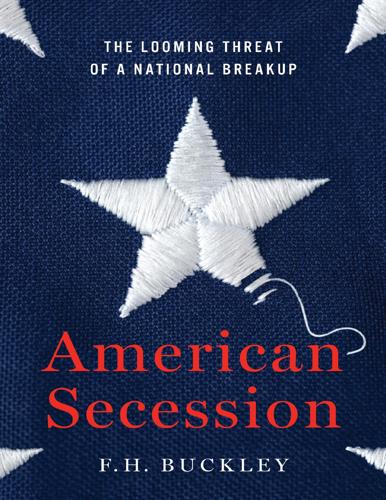
American Secession: The Looming Threat of a National Breakup
by
F. H. Buckley
Published 14 Jan 2020
Let’s look at the Yes California independence campaign, led by Marcus Ruiz Evans. It’s calling for a “Calexit,” echoing Brexit, and the movement has been gathering steam ever since Trump was sworn into office and started abandoning all manner of progressive causes. He has withdrawn America from the Paris Climate Accords and wants to open the California coast to offshore drilling. He has throttled back Obama’s auto emission standards and plans to revoke California’s right to set its own standards. To add insult to injury, he has slapped a 30 percent tariff on imported solar panels. From its headquarters in “Fresno, Republic of California,” Yes California makes the financial case for secession.
…
Morris, Gouverneur Mueller, Robert Mulroney, Brian NAFTA (North American Free Trade Agreement) Nagin, Ray Napoleon Bonaparte; empire of NASCAR Nashville Skyline (Dylan) nationalism: and liberal principles; as “progressive” NATO (North Atlantic Treaty Organization) neoconservatives neo-Nazis Ness, Eliot Nevada New Flemish Alliance New Jersey New York New Yorker New York Herald New York Morning News New York Times New York Tribune New York Weekly Journal New Zealand Nietzsche, Friedrich Nigeria “Night They Drove Old Dixie Down, The” Nixon, Richard North, Frederick North, 8th baron North Carolina; Research Triangle North Korea nullification doctrine Obama, Barack; and Affordable Care Act; and Blagojevich; diktats of; and drug enforcement; and military funding Obama, Michelle O’Connor, Flannery Once and Future King, The (Buckley) Oregon; and ICE Organization for Economic Cooperation and Development Orwell, George Paine, Tom Pakistan Palin, Sarah Paris Climate Accords parliamentary regimes Parnell, Charles Stuart Parti Québécois Paul, Rand pay-for-play Pearl Harbor attack Pettigru, James Philadelphia Evening Journal Philippines Piepenbring, Dan Pierce, Franklin Pinochet, Augusto Pledge of Allegiance Pocock, J.G.A. population; of California; density; and happiness; and military spending; and social trust; and wealth Posner, Eric post-contractual opportunism Putin, Vladimir Quebec; Charter opt-outs; Meech Lake Accords on; opportunism of; secession referenda in; and social welfare; and sovereignty-association Reconstruction Reconstruction Amendments Reference re Secession of Quebec religious faction Republican Party; and heartland Revolutionary War.
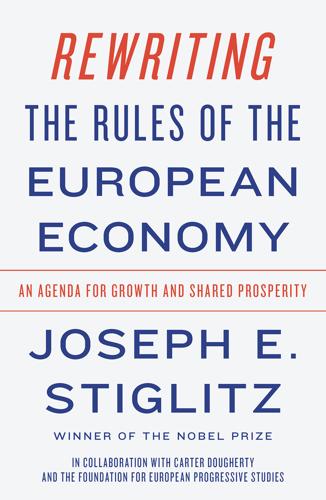
Rewriting the Rules of the European Economy: An Agenda for Growth and Shared Prosperity
by
Joseph E. Stiglitz
Published 28 Jan 2020
Even as talk of a trade war began, some firms producing in the United States but selling elsewhere discussed moving their factories. More broadly, Trump’s disdain for multilateral settings runs across policy areas. A concerted diplomatic effort by European nations to dissuade Trump from pulling out of the Paris climate accord failed. Trump shows no sign of making human rights a priority in US foreign policy—in fact, quite the contrary. Furthermore, international development work is on the chopping block and Trump left the Iran agreement, which was intended to reduce the threat of Iran acquiring nuclear weapons.
…
See home mortgages multilateralism, Trump and, 294, 296, 300–301, 311 multinational corporations, 198, 303–4, 318–20 Mundell, Robert, 33 NEET rates, 278 neoliberal (neoclassical) economics described, 13–14 limitations of, 14–16 perspective on retirees, 243 net public investment, 103–4 Netscape Navigator, 134 net wealth, taxation of, 190–91, 200 non-distortionary taxes, 187–88 non-tariff barriers, 317 North American Free Trade Agreement (NAFTA), 294–95 Obama, Barack, 211–12 OECD (Organization for Economic Cooperation and Development), 197 Office of the High Commissioner for Human Rights, 247 oligopolies, 129, 130, 220 One Belt, One Road initiative, 298, 302 Orderly Liquidation Authority, 181 Panama Papers, 196 Paradise Papers, 196 Paris climate accord, 328 patents, 144, 146–48 pension programs defined contribution systems, 248–49 informal economy adaptations, 247–48 job creation and, 246 neoliberal perspective on, 243 pension portability, 248 private sector failure, 243 privatizations, reversing, 244–46 public, misguided changes to, 243–44, 246–47 supplementing, with public option, 249–50 pharmaceutical companies intellectual property rules and, 145, 325 lack of transparency with, 312 place-based assistance, 274 Poland, 244, 245, 247, 271 political differences, 298–99 political divergence, 48–49 politics economics tied to, 95, 130 EU political rules, 10–11 of globalization, 221–22 Maastricht Treaty and, 75 Max Weber on, 9 political discontent, 2 political moment, current, 302–3 (see also globalization, mismanagement of) Portugal, 35, 36, 50, 219, 251 poverty rising, 218–19, 219 social protection and, 247–48 pre-distribution of market incomes, 223 Price Stability Doctrine, 18–19 private sector.
…
See also Free-Trade Doctrine; trade agreements; trade deficits crisis countries and, 41 globalization of, 23–24 liberalization of, 304–5 political differences impacting, 298–99 wars, effects of, 295–96 trade agreements compromises and benefits of, 291, 316–17 focus of current, 314, 317–18 limiting intellectual property rights, 324–26 pros and cons of, 24 questioning results of, 291 transparency and, 312–15 Trump hostility toward, 293–95 trade deficits in crisis countries, 39–40, 58–59 multilateral, 294 trade globalization, 23–24 trade liberalization, 304–5 trade wars, 295–96 Transatlantic Trade and Investment Partnership (T-TIP), 314 transfer pricing, 198 Trans-Pacific Partnership, 316–17 transparency ECB enhancing, 89, 173 markets requiring, 140–41, 290–91, 312–15 regulatory standards and, 319 Trichet, Jean-Claude, 42, 66 Troika demands on, by ECB, 77 managing 2008 crisis, 36 policies imposed on Greece, 40 structural reforms of, 70 Trump, Donald EU challenging, 300–301 against globalization, 287–88 misguided moves of, 295 policy failures of, 293–94 post-Trump world, 296–97 promoting protectionism, 292–93 trade policies of, 294–95 unilateralism of, 296 WTO opposition of, 310–12 Trump administration for-profit school regulation, negating, 229 Paris climate accord and, 328 pressuring lending law, 235 pro-Wall Street agenda of, 159 2008 financial crisis assessing impacts of, 29, 49–50 convergence criteria and, 34 countries impacted by, 35–37 enormous costs of, 157–58 unemployment and, 29–30, 31 2010 debt crisis. See sovereign debt crisis Uber, 268, 269 UBI.
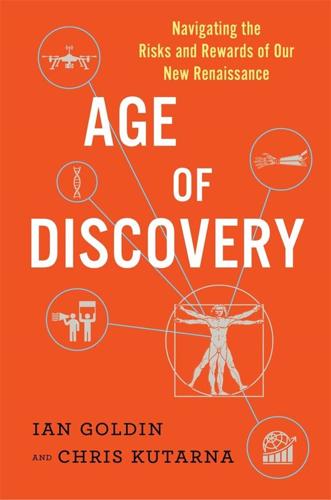
Age of Discovery: Navigating the Risks and Rewards of Our New Renaissance
by
Ian Goldin
and
Chris Kutarna
Published 23 May 2016
If Facebook were a nation, it would be the most populous on Earth, with over 1.5 billion active users each month.31 And despite being dispersed around the globe, they are all, on average, less than four degrees of separation apart.32 On Facebook, even if we’ve never met, a friend of your friend knows a friend of my friend. This new group intelligence has been pivotal in many of the most talked-about events of the twenty-first century: the Arab Spring, the Occupy movement, public relief efforts in response to Hurricane Sandy, the Paris Climate Accord and the rise of extremist political parties in Europe. The wide range of these activities highlights how the new digital medium can bring both positive and negative outcomes. Societies and citizens are still fumbling to learn how to operate and manage this layer of consciousness. It has helped give rise to the Islamic State of Iraq and the Levant (ISIS/ISIL)—and to new Arab secular movements that reject not just religious violence but religious governance (see Chapter Eight).
…
Competing Finally, “connected” suggests a reaching out to one another in a spirit of cooperation. We have done that, more and more, on cross-border issues: health, security, the economy and the environment. For example the global energy trade, which keeps the world’s lights on, betrays an interdependence that transcends many deep geopolitical divides. See Figure 3-4. And the 2015 Paris Climate Accord saw 195 nations come to a science-driven consensus that alternative fuels must power most of our twenty-first century. Figure 3-4. The global oil trade defies many deep geopolitical differences. Source: BP (2015). Statistical Review of World Energy (64th Ed.). London: BP. But contest, too, motivates our reach.
…
See Buonarroti, Michelangelo middle class, 73–5, 93, 178, 186, 241 Middle East, 40–1, 93 Arab Spring, 24, 36, 211, 222–4, 228 and economic divergence, 211 and development, 161 and health care, 98 and life expectancy, 76 See also Islam migration benefits of, 86–8 challenges of, 230–1 drivers of, 59 economic migration, 56–7 and innovation, 59 international migration flows, 58 and labor, 57–9 long-term, 52–60 and policy, 249–51, 254 in the Renaissance, 55–6 and selected capital inflows to developing world, 87 and urbanization, 53–5, 249–50 See also refugees Milner, Yuri, 156 modernity, 152, 207–10, 212, 229 Moore, Gordon, 31 Moore, Michael, 227 Moore’s Law, 31–2, 117, 123, 136 More, Thomas, 75, 261 Mosteghanemi, Ahlam, 212 Musk, Elon, 243 Myanmar, 24, 206, 252 9/11, 4, 166, 207, 219, 227, 242 nanotechnology, 125–31, 157, 162 National Security Agency (NSA), 24 nationalism, 65, 230 new media, 25–37 New Renaissance, 7–10, 139, 235–67 beginning of, 10 breadth of achievement, 101 and collaboration, 145 and democracy, 230 and life sciences, 121 and progress, 11, 98–9 and protest, 223 Newton, Isaac, 107, 124, 237 Nigeria, 43, 94, 146, 182 Nobel Prize, 137, 158, 238 Nokia, 43 North American Free Trade Agreement (NAFTA), 25 North Korea, 25, 98, 111, 197–9, 223 Occupy movement, 36, 220–1, 224 offshoring, 44, 249 open-source movement, 145, 241 Open Tree of Life, 36 Ottoman Empire, 2, 10–11, 18, 30, 40–1, 51, 55, 60–1, 72–3, 135, 194–5, 204, 209, 213, 230 Oweidat, Nadia, 213 pandemics, 137, 185–7 Black Death, 1, 70, 72–3, 93, 143, 173–5, 177, 184 defined, 179 Ebola, 181–3 H5N1 (bird flu), 165, 183–5, 186, 237, 253 HIV/AIDS, 76, 83, 98, 101, 154, 158, 185–6 SARS, 180–1 Spanish flu, 165 paradigm shifts and Copernicus, 105–8, 110–12, and genius, 107 in life science, 112–21 in physical science, 121–31 in the Renaissance, 105–11 See also genius Paris Climate Accord, 36, 67 patents, 136–7, 159, 227, 244–5 PayPal, 59, 153, 243 perspective, need for, 4–7 Peru, 29, 93 Petrarch, 80, 133, 256 Peurbach, Georg von, 105, 133 PewDiePie, 138 pharmaceutical industry, 83–4, 113, 183, 245 3D-printed drugs, 119 and diminishing returns, 154–5 gene therapy, 119–20, 158 and nanotechnology, 131 and pace of discovery, 162–3 R&D spending, 154 Phelps, Edmund, 240–1 physics, 121–5 quantum mechanics, 123–8 and random motion, 128 and scale, 121–8 scanning tunneling microscope (STM), 128 and stickiness, 128 plague.
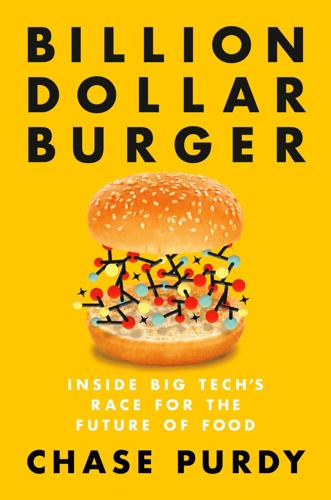
Billion Dollar Burger: Inside Big Tech's Race for the Future of Food
by
Chase Purdy
Published 15 Jun 2020
Its many windows were illuminated, emanating a warm and inviting glow. It was the restaurant, De Hoop op d’Swarte Walvis. We were scheduled to have dinner at the restaurant, but the sight of it relit the anger Ira was feeling toward the Dutch government. The softness in her voice evaporated. With everything at stake—the changing climate, the Paris Climate Accord going into effect in less than a year, and billions of animals dying every year unnecessarily—how could her own government have been the first to strike down an attempt to get cell-cultured meat to market? If the government had been supportive, it would have sent a powerful message to the rest of the world, Ira said.
…
See beef industry; chicken industry; industrial farming “meat paste,” 114, 116 Meester Stegeman BV, 24 Mège-Mouriès, Hippolyte, 158 Memphis Meats, xv, 28, 131–35, 155, 180 author’s taste test, 133–35, 224 cost issue, 29–30 funding, 149 New Harvest presentation, 175–76 Merck & Co., 122–23 methane gas, 6–7 Miller, Rhonda, 130–31 Mission Barns, xv, 40, 155, 188 Mission District (San Francisco), 1, 227 Mission Dolores Park (San Francisco), 95–96 Momofuku Nishi, xv Monsanto, 198 More Than Me, 76 Mosa Meat, xv, 45, 120–30 Moto (Chicago), 218 mouthfeel, 133–34, 203, 234 Mozdziak, Paul, 35–36 Mulhern, Jim, 156 mung beans, xvii, 39, 184, 217, 222, 237 Murdoch, Rupert, 91 muscle cells, 4, 32, 117, 122 Nahmias, Yaakov “Koby,” 118–19 NASA, 25–26 National Association of Egg Farmers, 165 National Catholic Reporter, 144 National Cattlemen’s Beef Association, 15, 156–57, 169–70, 174 National Center for Earth Surface Dynamics, 151 National Milk Producers Federation, 156 National Research Foundation, 184 Nazi Germany, 20–21 NEMO Science Museum (Amsterdam), 56, 58, 59–60 Nestlé, 195–96 Netherlands flood control, 18 Neuromancer, The (Gibson), 17, 18 New Crop Capital, 146, 148 New Harvest, 44, 98–99, 175–76 Newkirk, Ingrid, 26, 151–52 News International phone hacking scandal, 91 New World Group, Inc., 104 New York Times, 26, 89, 192, 197, 234 North American Meat Institute, 176 North Carolina State University, 35 Northern Virginia Community College, 34 Noyes, Andrew, 66, 214, 217–18, 227 nucleotides, 127–28 Oleomargarine Act of 1886, 159, 164, 165 Orchard system, 38–40 organic foods, 215, 216–17 Or ha-Hayyim, 187–88 Orthodox Union, 189–91 Oryx and Crake (Atwood), 17, 18 Ottoman Empire, 187 Oxford University, 14, 45–46 Palantir, 82 Pape, Stuart, 168–69, 170–71, 178 pareve, 189–90 Paris Climate Accord, 61 Paris World Exhibition (1866), 158 Park, Nate, 218–24 partially hydrogenated oils, 167–68 pâté, 3–5, 133 Pax Christi–Spirit of Life Plowshares, 140–44 PayPal, 82 pentobarbital, 96 Perfect Day, 12 PETA (People for the Ethical Treatment of Animals), 26, 88, 145, 151–52, 195 Peter the Great, 55 PHW Group, 166 Pixar Animation Studios, 1 Plant Based Foods Association, 89 political lobbying, 168–73 Pollan, Michael, 192, 214 Polsinelli PC, 168–69 Popular Mechanics, 14 Post, Mark, 24, 26–28, 45, 110, 120–30, 162 author’s visit to Mosa Meat, 120–30 first prototype, xiii–xv, 2–3, 26–27, 122 production considerations, 125–29 Princeton University, 195 privacy rights, 153 processed foods, 42, 131 Procter & Gamble Company, 147 Purdy, Connie, 43, 213–14, 217–27 Quartz, 48, 196 Radnor High School, 70–71, 73 Rajneesh (Bhagwan Shree Rajneesh Osho), 20, 20n Red Cross, 19, 21 regulations.
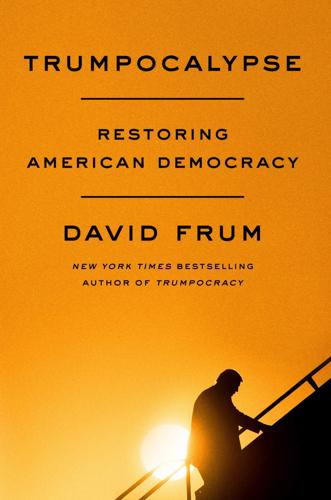
Trumpocalypse: Restoring American Democracy
by
David Frum
Published 25 May 2020
“We recognize we will benefit more from a strong and equal partner than from a weak one,” said Bill Clinton in January 1994.6 Trump discarded this commitment to cooperation. The Trans-Pacific Partnership had been negotiated under two previous presidencies to balance Chinese power. Trump called TPP “a rape of our country”7 and withdrew three days after becoming president. Trump quit the Paris climate accords and abandoned the Transatlantic Trade and Investment Partnership before it could get started. Trump upended trade agreements like the North American Free Trade Agreement and the South Korean agreement. He raged against the World Trade Organization. He reneged on a refugee domiciling agreement with Australia, insulted heads of government in Canada and Germany, urged the United Kingdom to exit the European Union, and then hit the British with trade penalties once they were isolated and weakened.
…
Trump and, 125 politicization of, 36–37 voting rights and, 81 Kavanaugh, Brett, 80, 109 Keillor, Garrison, 117 Kemp, Brian, 79 Kennedy-McCain immigration bill, 129 Kentucky, 138, 184 Khamenei, Ayatollah, 172 Kim Jong-un, 48 King, Martin Luther, 99 King, Steve, 136–137 Kipling, Rudyard, 192 Krauthammer, Charles, 179–80 Kundera, Milan, 67 Kurds, 3, 17, 94–96, 169 Kushner, Jared, 26–27, 44, 88 Laden, Osama bin, 95–97 Lasseter, John, 117 Las Vegas, 83 mass shootings, 55 Lauer, Matt, 117 Law and Justice Party (Poland), 66 law enforcement, reforming, 125–27 Lebanon, 173 Legan, Santino William, 57 Leibniz, 157 Lengyel, Joseph, 93 Levin, Mark, 150 libertarians, 134 Libya, 43 Lieberman, Joe, 85 life expectancy, 13, 131–32 Limbaugh, Rush, 34, 75 Lincoln, Abraham, 17, 19–20, 199 lobbyists, 35, 102, 127, 190 Loesch, Dana, 59 Logan, John, 187–88 Lord, Jeffrey, 176 Los Angeles, 83 Louis C.K., 117 Louisiana, 80, 122–23, 187 Louis XIV, King of France, 98 lynching, 117–18 Maine, 76, 118 Malaysia, 160 Manafort, Paul, 31–32 Mansfield, Harvey C., 82 manufacturing, 12, 102 Mar-a-Lago, 26 Marciano, Paul, 117 Marine Corps, 92–93, 101 Marist Institute, 110 marriage, 13–14, 148 Maryland, 83, 117 masculinism, 65 Massachusetts, 117, 129 mass shootings, 53–58 Mateen, Omar, 54–55 Mattis, James, 88, 93, 100–101, 165, 174 McCabe, Andrew, 125 McCain, John, 19, 73, 183 McConnell, Mitch, 121 McGahn, Don, 85, 90 McKenzie, Frank, 97 media, 15, 67, 189–91, 194 Medicaid, 132–33, 138 Medi-Cal, 144 Medicare, 112, 130, 133–35, 142, 148 Medicare for All, 106, 118, 130, 134 men labor-force participation and, 13 political attitudes, 14 sexual anger and, 5, 65–66 #MeToo movement, 117 Mexico, 46, 108, 145–46, 159, 178–79 border wall and, 21–22 NAFTA/USMCA and, 178 Michigan, 75–76, 78, 186 Middle East, 157, 171–74 “Might Is Right” (racist tract), 57 Milano, Alyssa, 117 military, 90–94, 100–101, 165, 191 parade and, 90–91 spending, 133, 165 Military Times, 91, 93 Milley, Mark, 92 Ming dynasty, 156 Minnesota, 76 misogyny, 57, 65–66, 118 Mississippi, 80, 121–23 Missouri, 137 Mitchell, John, 125 Monmouth polls, 139 Montenegro, 63 Moonves, Les, 117 Morocco, 172 Morris, Gouverneur, 98 Moynihan, Daniel Patrick, 131 Mueller, Robert, 1, 29–33, 59, 125 Mulvaney, Mick, 189 Muslims, 51, 54, 61, 63–64, 179 Mussolini, Benito, 86 Naipaul, V.S., 18 Napoleon, 65 National Enquirer, 109 National Guard, 93 nationalism, 50–51, 62–63, 196 National Lynching Memorial, 117 National Oceanographic and Atmospheric Administration (NOAA), 126 National Rifle Association (NRA), 59, 61 National Security Agency (NSA), 45 National Security staff, 88, 96–97 Navajo Generating Station, 118 Naval Operations Chief, 92 Nazism, 64, 145 NBC, 24, 59 Nebraska, 184 Neller, Robert, 92 Netherlands, 133 Never Trumpers, 90 New Black Panthers, 69 New Hampshire, 76 New Jersey, 75 New Orleans, 80 Newton, Isaac, 157 New York City, 83, 163 New York magazine, 109 New York State, 75, 118, 184–86 New York Times, 41, 43, 46, 61, 65, 95, 102, 111, 118, 194 New Zealand, 55–56, 162, 177 Nicaragua, 108 Nixon, Richard, 62, 82, 85, 99–100, 105, 125, 198 No Child Left Behind Act (2002), 140 Nolte, John, 149 Noonan, Peggy, 196 Norquist, Grover, 196 North American Free Trade Agreement (NAFTA), 41, 112, 178 North Atlantic Treaty Organization (NATO), 45, 63, 93–94 North Carolina, 76, 78, 80, 123 North Dakota, 122, 164 Northeastern University, 55 North Korea, 44–46, 48–49, 169, 171–72 nuclear energy, 164, 166–67 nuclear weapons, 93–94, 180 Oak Ridge nuclear complex, 167 Obama, Barack, 12, 15, 64, 130–31, 136, 178, 183, 196–97 ACA and, 134–35 bin Laden and, 95–96 China and, 177 climate change and, 152 elections of 2010 and, 79 foreign policy and, 171, 179 immigration and, 21, 24, 106 Iran and, 172 Islamic world and, 53–54, 179 Obama, Michelle, 26 Ocasio-Cortez, Alexandria, 147, 167 oceans, 155–56 Office of Management and Budget (OMB), 102 offshore tax havens, 102, 174 Ohio, 78, 82–83 oil and gas (fossil fuels), 42, 94, 127, 150, 153–56, 161, 163–64 One American News Network (OANN), 15 O’Neill, Brendan, 149 O’Neill, Tip, 127 Orbán, Viktor, 67, 69, 143 Oregon, 118 O’Reilly, Bill, 15 Organization for Economic Cooperation and Development, 132 Ornstein, Norman, 77 Owens, Candace, 64 Paddock, Stephen, 55 Pakistan, 88–89, 95, 173–75, 180 Palestine Liberation Organization (PLO), 60 Palin, Sarah, 83, 84 Panama, 45, 108 Paris Bastille Day parade, 90–91 Paris climate accords, 41, 162 Parnas, Lev, 89, 190 Patriot Prayer, 60 Pegler, Westbrook, 83 Pence, Mike, 4, 26, 35, 63 Pennsylvania, 82–83, 118, 186 Perkins, Tony, 3, 75 Perón, Eva, 18 pharmaceutical companies, 133 Philadelphia, 184, 186 Philippines, 44–45, 146 Pierce, William, 60 Pittsburgh, 186 synagogue shooting, 56, 61 plastics, 118, 156, 160 Playboy, 49 Poland, 50, 66–67, 89, 93, 193 polarization, 15, 130–31, 137–38, 187 political correctness, 15, 110 poll taxes, 71 pollution, 159–61 Pompeo, Michael, 47, 171 population distribution, 75–79, 83, 121–22 Prager, Dennis, 149 progressives, 107–8, 110–13 protectionism, 3, 50, 161 Proud Boys, 60–61 public schools, 136–37, 140–41 Pulse nightclub shootings, 53–55 Putin, Vladimir, 3, 32–33, 44, 48, 63–64, 89, 176, 197 QAnon, 34 Quartz, 156 race and racism, 5–6, 43, 56–58, 62–63, 65–66, 107, 111–12, 127, 140–41, 191 voting and, 71, 80–81 Reagan, Ronald, 18, 39, 51, 62, 105–6, 181, 191 real estate, 120 recessions, 12, 127, 144 recycling, 159–60 red flag laws, 117 redistricting, 84 red meat consumption, 163 reform, recommendations for consensus and, 118–19 DC statehood and, 122–23 filibuster and, 120–22 gerrymandering and, 124–25 law enforcement and, 125–26 presidential tax returns and, 119–20 regulation, 127, 188 Reid, Harry, 121 Republican National Convention 2008 (St.
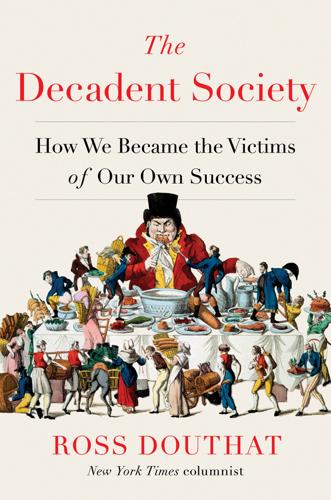
The Decadent Society: How We Became the Victims of Our Own Success
by
Ross Douthat
Published 25 Feb 2020
And it was entirely normal that the Libyan intervention, like our post-ISIS return to Iraq and our stumblebum attempts to influence the course of the Syrian civil war, lacked any specific congressional authorization, continuing a pattern of congressional abdication in foreign policy and domestic policy alike. It was entirely normal that the White House’s chief diplomatic achievements, the Iran nuclear deal and the Paris climate accords, also lacked congressional authorization, meaning that they could be rolled back (and were) with the stroke of a successor’s pen. And it was, finally, entirely normal that every other Obama initiative—the reset with Russia, the predictable Israel-Palestine push, the “pivot to Asia”—was in tatters by the time he left the White House.
…
S., 209 Napster, 105 NASA, 5 National Geographic, 38 nationalism, 86, 172–73 as escape from sclerosis, 217–18 National Security Agency (NSA), 144 Internet companies and, 146, 147 neoliberalism, 24 left-wing critique of, 30–31 libertarian critique of, 30, 31 limits of, 28–32, 219 neo-Marxism, 219–21 neo-paganism, see paganism Netanyahu, Benjamin, 218 New Age spiritualism, 101, 103, 224, 225, 226 New Deal, 68, 74 New Frontier, 181 New Journalism, 109–10 New Republic, 114 New York, 127 New Yorker, 109, 134 New York Review of Books, 6 New York Times, 60, 62, 137 Nisbet, Robert, 108–9, 110 Nixon, Richard, 24, 77 North Africa, political turbulence in, 194 nostalgia, 181, 206 “Nothing to Hide” (Twitter account), 147 nuclear war, 191 Nye, David, 36, 37 Obama, Barack, 67 and management of decadence, 181 presidential unilateralism and, 60 Obamacare, 68, 69–70, 73–74, 76 Obama presidency: foreign policy of, 70–71 political sclerosis and, 67–72, 74 Occupy Wall Street, 113 offshoring, 28, 29 Oliver, Kendrick, 231–32 opioid epidemic, 126–27 Orban, Viktor, 85, 164 Oumuamua (cosmic object), 233, 237 paganism, as path to renaissance, 224–26 Panopticon, 144, 152, 153, 154 see also pink police state pantheism, 224, 225, 226 parents, older, children of, 60–61 Paris climate accords, 71 Paris Statement (2016), 217, 219 Parsons, Jack, 231 Pascal, Blaise, 235–36 Perot, Ross, 78–79 Peterson, Jordan, 97, 224 pharmaceutical industry, 44 Phillips, Todd, 94 Piketty, Thomas, 12, 30, 57–58 Pinker, Steven, 165 pink police state, 140–54 civil liberties and, 141–42 in Europe, 143–44 marginalization of dissent in, 151–52, 153–54 playacting and performance in, 152 political discourse in, 147 soft pressure vs. hard enforcement in, 148 see also surveillance state Pizarro, Francisco, 189 plagues, impact on civilization of, 190 Poland, 85–86 polarization, 154 sclerosis and, 76–81 political discourse, in pink police state, 147 politically correct speech, 143 political parties, polarization of, 77–81 politics: declining birthrate and, 62–66 as entertainment, 153–54 historical norms of, 68–69 of sustainable decadence, 129–36 Politico, 198 polytheism, 225 popular music, decline of originality in, 91 populations, aging of, see aging populations populism, resurgence of, 12–13, 22, 27, 28, 63, 64, 78–80, 85, 86, 152, 153–54, 181, 193 immigration and, 196 as threat to liberal order, 171–73 pornography, 107, 149 addiction to, 119 Internet culture and, 120–21 in Japan, 88 sexual violence and, 119–22 and sixties-seventies social revolution, 119 virtual entertainments and, 125 postcolonial world, cultural synthesis of West and, 208–9 postmodernism, 97, 98, 135 Poulos, James, 140–41, 146, 151 pre-Columbian America, European conquest of, 189–90 Prejudices: A Philosophical Dictionary (Nisbet), 108–9, 110 prescription drugs, social upheaval repressed by, 149 privacy, right to: Internet and, 145, 146–47 lack of public concern about, 147, 148 productivity: aging workforce and, 57 education and, 34–35 Internet and, 41 stagnation in, 44 progress: promise vs. reality of, 1–2, 4–5, 10–11, 28, 42–46 technological, see technology see also change progressives, progressivism, cultural repetition and, 98 Protestants, Protestantism: churchgoing by, 100 evangelical, 53, 101, 119, 222 psychics, 225 publishing industry, decline of originality in, 91, 105 Putin, Vladimir, traditionalism of, 162–63 Quinones, Sam, 127 race: identity and, 205, 221 new configurations of, 208 wage gap and, 99 racism, 63, 80, 97, 205 Rahner, Karl, 110 rape, see sexual violence Rauch, Jonathan, 72, 73 Ready Player One (film), 94 Reagan, Ronald, 24, 71 Reagan Revolution, 68, 77, 90, 100 recessions, 192, 193, 194 Reeves, Richard, 31 Reformation, 222, 227, 230 regulation, proliferation of, 72 Reign of Terror, 206 religion: belief in immanent divine in, 224 birthrate and, 53, 54 communitarianism in, 216 declining formal affiliation in, 99–100 demographic change and, 222–23 Eastern forms of, 225 as path to renaissance, 221–23 post-Christian, 224 public rituals in, 225, 226 repetition in, 99–100, 180 sects in, 101–2; see also specific sects secularism’s relationship with, 221 self-help versions of, 224 unforeseen revolutions in, 223 see also paganism religious debates, repetition in, 101–4 renaissance, 205–32 as combination of scientific programs and religious revival, 230–32 as concurrence of forces, 229–32 Eurafrican scenario for, 206–10, 218, 228–29 Islam as path to, 226–28 meaningfulness as core issue in, 221 paganism as scenario for, 224–26 political scenarios for, 215–21 religious scenarios for, 221–23 technological acceleration and, 210–15 renewable energy, 35, 43 rentier class, 26, 30–31, 46 repetition, 10, 11, 66, 89–115, 236 baby boomers and, 109, 111–12 in ideological debates, 100–101 innovation vs., 9 in intellectual realm, 96–101, 180 in Internet culture, 104–7 in movies, 91, 93–95 in music, 91 in publishing, 91 in religion, 99–100, 180 in religious debates, 101–4 in television, 95 Republicans, Republican Party: as interest-group protection racket, 76 polarization blamed on, 79 populism and, 79–80 sclerosis of, 80–81 tax policies of, 29 see also conservatives, conservatism research and development, stagnation in, 44–45 right: attention seeking by, 153 media-entertainment complex of, 80 political renaissance scenario of, 217–18 see also conservatives, conservatism Rise and Fall of American Growth, The (Gordon), 33 Rise of the Meritocracy, The (Young), 170–71, 172 rituals, public, 225, 226 robots, robotics revolution, 44, 210–11 Roman Empire, 13, 157 early Christianity and, 222, 223, 237 impact of plagues on, 190 Roosevelt, Franklin, 74 Russia, czarist, 162–63 Russia, modern: traditionalist ideology of, 162–63 Ukraine interventions of, 162 and US 2016 election, 162 Salvini, Matteo, 85, 114 Sanders, Bernie, populism of, 181 Sarah, Robert Cardinal, 206–8, 209, 228 Saudi Arabia, 160, 163 Scandinavia, 85 Schmidt, Eric, 146 Schneier, Bruce, 144 school shootings, 123–24 sclerosis, political, 9, 10, 11–12, 25, 67–88 centrist view of, 76–79 conservative-friendly explanations of, 72–76 in EU, 82–86 in Japan, 86 as kludgeocracy, 75 left’s view of, 79–80 mass immigration and, 64–65 nationalism as escape from, 217–18 Obama presidency and, 67–72, 74 polarization and, 76–81 and public expectations of government action, 74–75 of Republican Party, 80–81 as result of multiple trends, 81 virtuous communities as escape from, 215–17 Scorsese, Martin, 94, 95 Second Vatican Council, 100 secularism, 222–23, 227 birthrates and, 51, 53, 54 religion’s relationship with, 221 repetition in, 102–3 sterility of, 207 self-driving cars, 21 Senate, US, 67 Senegal, 208, 209 Senghor, Léopold Sédar, 208–9 September 11, 2001, terrorist attacks, 114, 159 Servan-Schreiber, Jean-Jacques, 42 sex, virtual entertainments and, 128 sex bureaucracy, 142–43 sexually transmitted diseases, increased rate of, 152 sexual relations: decline in, 55, 87, 125 among teenagers, 122–23 sexual revolution, 90 birthrate and, 50, 55 sexual violence: falling rates of, 120–22 pornography and, 119–22 Shallows, The (Carr), 107 Shawn, William, 109–10 Shinto, 225 Shulevitz, Judith, 61 Silicon Valley, 17, 19, 20, 21, 22, 42, 143, 146, 201 foreign investment in, 193–94 space race and, 43, 213 Simon, David, 95 Simon, Julian, 43 Singapore, 216 birthrate in, 50 pronatalist policies of, 52 Singularity, 24 sixties-seventies: promise of, 1–2 sociological and cultural change in, 99, 108–9, 119 see also baby boomers Slaughter, Anne-Marie, 97 “Slouching Towards Bethlehem” (Didion), 131 Smith, Adam, 179 Smithsonian Museum, 38 Snow family, 59–60 social credit systems, 138–40 social democrats, 73 socialism, resurgence of, 27, 28 social media, 106 “soma,” 127 Sopranos, The (TV show), 95 Soumission (Submission) (Houellebecq), 155–57, 159, 160–61, 172 South Africa, economic growth in, 166–67 South Asia, migration from, 199 South Korea, 164 birthrate in, 50 pronatalist policies of, 52 space race, 181 Silicon Valley and, 43, 213 space travel: critiques of, 5–6 expectations of, 2 physical limits on, 235 revolution in, 211 as scenario for end of decadence, 236, 239–40 unfulfilled promise of, 1–3, 5–6 Spain, 84, 85 Spanish conquest, 189–90 Specter, Arlen, 67 speech, politically correct rules of, 143 Spielberg, Steven, 94 Sputnik, 2 stagflation, 24, 28 stagnation, economic, 11, 17–46, 57, 193, 236 climate change and, 180 decadence as, 8–10 demographics and, 57 in Europe, 25 in Japan, 86, 125 let’s-pretendism and, 21 and limits on growth, 32–36 mass immigration and, 64–65 median US income and, 22–23 neoliberalism and, 28–32 unemployment and, 23 stagnation, technological, 36–42, 91, 103, 104, 165–66, 180, 201, 203, 214 stalemate, 66 see also sclerosis, political Stanford University, 44–45 Star Trek (TV show), 2, 38, 214 Star Wars movies, 89, 90, 111 Stephenson, Neal, 37 Steyn, Mark, 38–40, 41, 100 stimulus package, 67, 68 Suk, Jeannie, 142 Sullivan, Andrew, 127 Summers, Larry, 33 superrich, 31 surveillance state, 201 criminality and violence discouraged by, 148–49 Internet as, 144–47 Sweden, 52 Syria, 85, 199 civil war in, 70–71 Syrian refugee crisis, 85, 161, 196 tax rates, low, 28, 29 tax reform, 70 technocrats, 192, 202–3 sustainable decadence and, 181–83 technological acceleration: renaissance and, 210–15 social and political institutions and, 213–15 technological sublime, 36–37 technology: backlash against, 229 stagnation in, 36–42, 91, 103, 104, 165–66, 180, 201, 203, 214 unanticipated consequences of, 179, 191 teenagers: anxiety and depression among, 123 sexual relations among, 122–23 Teles, Steven, 30, 31, 75, 78 television: creativity in movies vs., 94–95 decline of originality in, 95 golden age of cable on, 95–96 terrorism, 114, 150, 159 in age of sustainable decadence, 131–33 Theranos, 18–19, 21 Thiel, Peter, 12, 41, 42, 102, 168 Thompson, Hunter S., 110 Thurber, James, 109 To Touch the Face of God (Oliver), 231–32 traditionalism: cultural/political, 48, 98, 162–63, 206 religious, 101, 103, 206–7, 208 Trump, Donald, 48–49, 79, 89, 132, 154 attention as primary need of, 152–53 election of, 99, 101, 114, 182 Great Recession and, 193 immigration and, 196 incipient authoritarianism of, 80, 130 populist appeal of, 78–79, 101, 181 as product of decadence, 12, 13 transgressive behavior of, 152 Twitter use by, 130 “Western civilization” speech of, 205–7 Trump presidency, 65 policy failures of, 71, 172 Trump voters, 63–64, 171, 217 Turner, Frederick Jackson, 3–4 “Twilight City,” 56, 57, 65 Twitter, 148, 194 Trump’s use of, 130 2001: A Space Odyssey (film), 2 Uber, 19–21, 22 UFOs: theories about, 237 videos of, 233–34 Ukraine, 162 Unconditional Surrender (Waugh), 183 unemployment, stagnation and, 23 Uninhabitable Earth, The (Wallace-Wells), 195–96 United States: aging population of, 60, 193 birthrate in, 50, 54 European governmental system vs., 82, 83 impact of climate change in, 197 Mexican immigration to, 198, 199 upper class: accumulation of advantage by, 31–32 rentier capitalism and, 26, 30–31, 46 U.S.
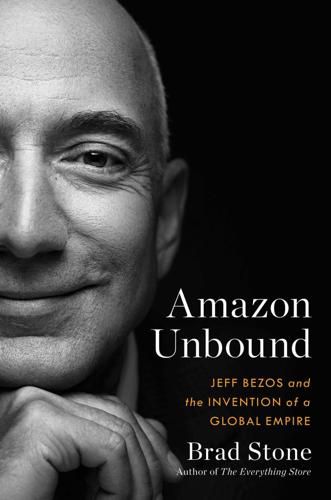
Amazon Unbound: Jeff Bezos and the Invention of a Global Empire
by
Brad Stone
Published 10 May 2021
Amazon was no longer just an inspiring business story but a referendum on society, and on the responsibilities that large companies have toward their employees, their communities, and the sanctity of our fragile planet. Bezos had attempted to address that latter concern by conceiving the Climate Pledge, a promise that Amazon would be carbon neutral by 2040, ten years before the most ambitious goals set by the Paris climate accords. Critics were hammering Amazon to follow other companies and reveal its carbon footprint—its contribution to the harmful gasses that were rapidly warming the globe. Its sustainability division had labored for years to create more efficient standards for its buildings and to cut down on wasteful packaging materials.
…
In Seattle, they gathered in front of the Spheres at 11:30 a.m., holding signs that read, “Amazon, Let’s Raise the Bar, Not the Temperature,” and “No AWS for Oil and Gas,” while arguing that the company had to rethink its devotion to greater selection, faster shipping, and delighting customers, regardless of the environmental cost. It was the day after Jeff Bezos had introduced the Climate Pledge at a press conference in Washington, D.C., promising that Amazon would reach net zero in its carbon emissions by 2040, ten years before the most ambitious goals set by the Paris climate accord. Companies such as Verizon, Microsoft, and Mercedes-Benz would sign on to the initiative, and Amazon would purchase the naming rights to a new sports coliseum in Seattle and call it “Climate Pledge Arena.” The media around the world covered the employee protests, and in a far more sympathetic way than the hazy and ambitious promises of Amazon’s Climate Pledge.
…
Trade Representative, 183 Olsavsky, Brian, 246 Omidyar, Pierre, 122 O’Neill, Gerard K., 281 OnePlus, 77 Onetto, Marc, 166, 218–21, 224, 225 OneWeb, 279 Oracle, 97–99, 173, 360, 361 Oscars, 137, 322 OSHA, 224 Osowski, Lukasz, 28 Outcast Agency, 324 Overstock, 373 paddle boards, 170, 374–75 Paramount Pictures, 158 Paris climate accords, 2, 381 Parkland shooting, 301 Paull, Michael, 146 Pecker, David, 328, 331–32, 334, 337–39, 341, 342, 345 Pegasus, 344 Pelosi, Nancy, 1 Penner, Greg, 90 People’s Production Company, 142 Pérez Sagaón, Abril, 85–86 Perry, Katy, 325 Perticucci, Roy, 392 Peterson, Matt, 97 phatic speech, 34–35 philanthropy, 15, 16, 244, 288, 290, 402–4 Bezos Day 1 Fund, 49, 324, 406 Bezos Earth Fund, 402–4, 406 Blue Origin and, 269, 281–82 of MacKenzie Scott, 323–24, 346, 402–3 Piacentini, Diego, 71, 73, 77, 79, 80, 83, 100, 104 Pichai, Sundar, 359, 369 Pitt, Brad, 325 Plugable Technologies, 176, 375–76 Pluimer, Larry, 181 Poitier, Sidney, 141 Politico, 124 Poovalingam, Vinoth, 76 PopSockets, 367–68 Porter, Brad, 399 Portrait of a Nation Prize, 1–2 Prakash, Shailesh, 123, 129–30 Prasad, Rohit, 35–38, 42, 47, 52 presidential candidates in 2020 election, 351, 353–55, 364 Price, Frank, 140–41 Price, Roy, 136, 137, 140–57 Prione Business Services, 77 Prisoner (Rezaian), 131 privacy, 23, 51–52 ProPublica, 237, 240 Procter & Gamble, 202, 246, 251 Project Kuiper, 404 Puerini, Gianna, 55–57, 59, 62, 64–66, 68 Purohit, Jagdish Raj, 92 Quidsi, 9–10, 193, 209, 222 Quinn, Sally, 133 Rabbit, 195, 238–39 Raghavan, Bali, 56, 58, 62 Rakuten Intelligence, 240–41 Ramji, Shiven, 251 Rashid, Taimur, 99 Ratner, Brett, 337 Rawlings, Mike, 300, 308 Raytheon, 280 Reagan, Ronald, 124 Reddit, 52 Refn, Nicolas Winding, 152 Reid, Toni, 45, 46, 51 Reliance Industries, 93, 384 research and development (R&D) expenses, 67 Reuters, 77, 210 Reveal, 224 Rezaian, Jason, 131–32 RFID chips, 57, 225 Rhimes, Shonda, 154 Riggs, Conrad, 145 Ring, 319, 367 Rivian Automotive, 4 Robb, Walter, 185 Robertson, James, 330, 332, 333 robotics, 55, 56, 213, 222–24, 388, 389 Rodriguez, Alex, 325 Rogers, Ty, 120 Rolle, Nina, 30, 289 Rolls-Royce, 280 Romanoffs, The, 152 Ronen, Assaf, 258 Rosa, Mike, 299 Rose, Charlie, 54 Rosenstein, Barry, 186 RosettiStarr, 360 Rosseter, Megan, 207–8 Roth, Mike, 216–17, 225, 229–31, 233 Rubinstein, David, 350 Ruffin, Scott, 233 Rupp, Chris, 104–7, 112 Russell, David O., 152 Russia, 272 Ryan, Fred, 124–25, 131, 133, 343 Safeway, 186, 192, 196 St.
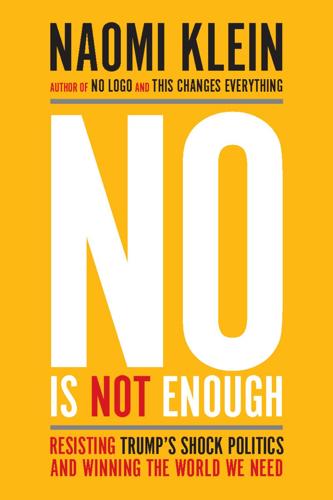
No Is Not Enough: Resisting Trump’s Shock Politics and Winning the World We Need
by
Naomi Klein
Published 12 Jun 2017
Then, in the name of rescuing the government and perhaps the entire economy, the White House will start checking off the more challenging items on the corporate wish list. Weather Shocks Just as Trump’s national security and economic policies are sure to generate and deepen crises, the administration’s moves to ramp up fossil fuel production, dismantle large parts of the country’s environmental laws, and trash the Paris climate accord all pave the way for more large-scale industrial accidents—not to mention future climate disasters. There is a lag time of about a decade between the release of carbon dioxide into the atmosphere and the full resulting warming, so the very worst climatic effects of the administration’s policies won’t likely be felt until they’re out of office.
…
In the UK, nearly two million people signed an official petition to block Trump from making a state visit to Britain (Trump, reportedly, is demanding a ride in the golden royal carriage). There is also a growing international movement calling on governments to impose trade sanctions on the United States for violating the emissions reduction pledges it made under the Paris climate accord. And the movement to jam the Trump brand is growing, including a global call to boycott companies that rent space in Trump’s various towers, as well as campaigns to push developers to drop the Trump name from cities’ skylines. …and around the World Nearly every country has its own white nationalist or neo-fascist movement to confront, and there are many signs that resistance is rising.

The Uninhabitable Earth: Life After Warming
by
David Wallace-Wells
Published 19 Feb 2019
It has become commonplace among climate activists to say that we have, today, all the tools we need to avoid catastrophic climate change—even major climate change. It is also true. But political will is not some trivial ingredient, always at hand. We have the tools we need to solve global poverty, epidemic disease, and abuse of women, as well. It was as recent as 2016 that the celebrated Paris climate accords were adopted—defining two degrees of global warming as a must-meet target and rallying all the world’s nations to meet it—and the returns are already dispiritingly grim. In 2017, carbon emissions grew by 1.4 percent, according to the International Energy Agency, after an ambiguous couple of years optimists had hoped represented a leveling-off, or peak; instead, we’re climbing again.
…
Often grouped together under the umbrella term “geoengineering,” this prospect has been received by the public as a worst-case scenario, nearly science fiction—and has, in fact, informed much of the recent sci-fi that has addressed itself to the climate crisis. And yet it has gained a terrific amount of currency among the most concerned climate scientists, many of whom will also note that none of the quite modest goals of the Paris climate accords can be achieved without negative-emissions technologies—at present prohibitively expensive. Carbon capture may indeed prove to be “magical thinking,” but the cruder technologies—we know these will work. Rather than sucking carbon out of the atmosphere, we could shoot pollution into the sky on purpose; perhaps the most plausible version involves sulfur dioxide.
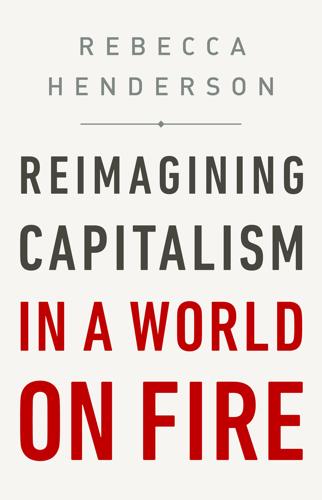
Reimagining Capitalism in a World on Fire
by
Rebecca Henderson
Published 27 Apr 2020
Michael, “Trump Will Withdraw U.S. from Paris Climate Agreement,” New York Times, June 1, 2017, www.nytimes.com/2017/06/01/climate/trump-paris-climate-agreement.html. 52. Andrew Winston, “U.S. Business Leaders Want to Stay in the Paris Climate Accord,” Harvard Business Review (Feb. 27, 2018), https://hbr.org/2017/05/u-s-business-leaders-want-to-stay-in-the-paris-climate-accord. 53. www.wearestillin.com/. 54. Adam Bonica and Michael McFaul, “Opinion / Want Americans to Vote? Give Them the Day off,” Washington Post, Oct. 11, 2018, www.washingtonpost.com/opinions/want-americans-to-vote-give-them-the-day-off/2018/10/10/5bde4b1a-ccae-11e8-920f-dd52e1ae4570_story.html?
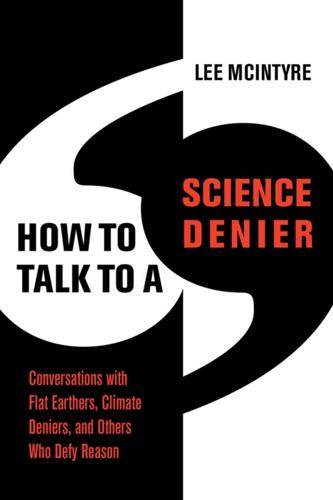
How to Talk to a Science Denier: Conversations With Flat Earthers, Climate Deniers, and Others Who Defy Reason
by
Lee McIntyre
Published 14 Sep 2021
Simon Carraud and Michel Rose, “Macron Makes U-turn on Fuel Tax Increase, in Face of ‘Yellow Vest’ Protests,” Reuters, December 4, 2018, https://www.reuters.com/article/us-france-protests/macron-makes-u-turn-on-fuel-tax-increases-in-face-of-yellow-vest-protests-idUSKBN1O30MX. 16. Mufson, “A Kind of Dark Realism.” 17. Brady Dennis, “Trump Makes It Official: U.S. Will Withdraw from Paris Climate Accords,” Washington Post, November 4, 2019, https://www.washingtonpost.com/climate-environment/2019/11/04/trump-makes-it-official-us-will-withdraw-paris-climate-accord/. 18. David Roberts, “The Trump Administration Just Snuck through Its Most Devious Coal Subsidy Yet,” Vox, December 23, 2019, https://www.vox.com/energy-and-environment/2019/12/23/21031112/trump-coal-ferc-energy-subsidy-mopr. 19.
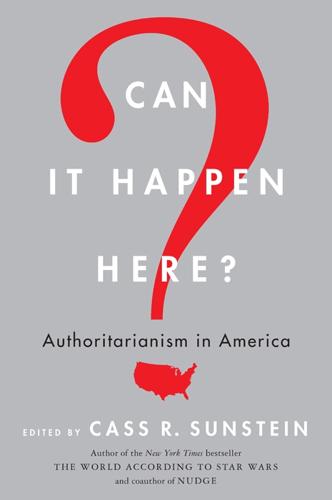
Can It Happen Here?: Authoritarianism in America
by
Cass R. Sunstein
Published 6 Mar 2018
Finally, social systems can suffer from collective action problems (Olson 1965; Schelling 1973) in which the outcome that everyone would prefer (e.g., clean air, pristine wilderness, reliable infrastructure, safe neighborhoods) fails because no one individual has the ability or incentive to provide it—a situation that is sometimes called a tragedy of the commons (Hardin 1968). Following Granovetter’s logic, the gravest danger of Trump’s recent decision to exit the Paris Climate Accord is not the direct impact that US noncompliance would have on global temperatures—although that could indeed be grave—but rather the second, third, and higher-order effects of the move. Just like in Granovetter’s model, if other countries hold firm, the impact of the US withdrawal may be minimal.
…
Sebelius, 382–83 NFL (National Football League), 16, 138 “Night watchman state,” 38–40, 43 Nineteen Eighty-Four (Orwell), ix Nixon, Richard, 4, 6, 7, 78–79, 109 Non-Detention Act of 1971, 316–17 Normative threat, 179, 180, 181, 185, 186–87, 193–94, 196, 201–6, 215 North Carolina, 152–53 North Korea, viii Nudging (nudge theory), 342–43 Obama, Barack, 1, 5, 6, 7, 75, 122, 129n, 222, 323, 332, 404–5 probabilistic approach of, 351–52 Obamacare, 29–31, 345–46, 351, 382–83 Office of Government Ethics, 154–55 Oligarchy, 20, 21, 23–24, 26, 29–34 O’Malley, Edward, 85 “On ‘It Can’t Happen Here’” (Feldman), 157–74 Orbán, Viktor, 147, 151, 165, 408–10, 419 Orwell, George, ix Pagès, Jean-Pierre, 291 Paine, Thomas, 331–32 Pakistan, 107 Palmer, A. Mitchell, 436–37 “Paradoxes of the Deep State” (Goldsmith), 105–33 Paris Climate Accord, 345, 346 Party system, 152–53, 168, 396–97, 405 gradual breakdown of, 21–22 intolerant communities and, 238 Trump’s attacks on, 12–14 Patel, Marilyn, 317 Patronage system, 12, 13–14, 16 Paxton, Robert O., 46–47 Payer, Jean-Baptiste, 290 Peer effects, 343–44 Pence, Mike, 33 Pentagon Papers, 78–79 “Person-situation interaction,” 179 Physics, 339–40 Pildes, Richard, 24 Pinochet, Augusto, 48 Pizzagate, 87–88, 99–100n Plot Against America, The (Roth), ix Poland, 149–50, 171, 406–7, 408–13, 420 Polarization, 22–23, 28, 395, 420 mutually reinforcing intolerances, 246–50 oligarchy and, 25, 28, 29 Polish Law and Justice Party, 149–50 Political assassinations, 393–94 Political bots, 86–90 Political correctness, 240, 241–42, 245, 246 Political discontent, 388–95 Political economy, 159, 172, 173 Political elites.
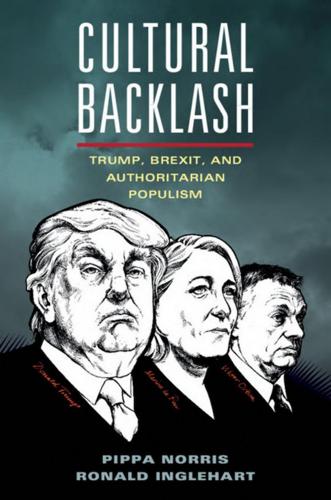
Cultural Backlash: Trump, Brexit, and Authoritarian Populism
by
Pippa Norris
and
Ronald Inglehart
Published 31 Dec 2018
Accordingly, Trump’s rhetoric stimulated racial resentment, intolerance of multiculturalism, nationalistic isolationism and belligerence, nostalgia for past glories, mistrust of outsiders, sexism, the appeal of tough leadership, attack-dog politics, and racial and anti-Muslim animosity. Part I Introduction 77 The Trump campaign rally cry ‘Build the Wall’ and ‘America First’ perfectly encapsulates the notions of isolationism and protection against threats from outsiders. Similar sentiments underpin his policies to renegotiate or scrap NAFTA, to pull out from the Paris climate accord, and his demands that NATO member states increase their defense spending. Those favoring Britain leaving the European Union echoed similar sentiments, arguing that Brexit would restore national sovereignty, allow Britain to regain control of its borders and restrict the flow of refugees and migrants, and eliminate the UK’s financial contributions to the EU.47 Debate continues about what threats to security are most likely to activate authoritarian values in such societies as Sweden, the Netherlands, and the UK that have long-established cradle-to-grave welfare states, comfortable living standards, and relatively high per capita incomes.
…
But Trump has also followed economic protectionism for American industry, imposing tariffs on trade, renegotiating NAFTA, and seeking to restore coal-mining jobs.12 Similarly, in international affairs, President Trump may be seen as an isolationist. His ‘America First’ rhetoric has signaled US withdrawal from multilateral agreements and alliances, such as the TPP, the Paris climate accord, the Iran accord, and America’s leadership role of the free world, as well as tearing up the State Department’s investment in democracy promotion, human rights, and the United Nations. President Trump has sharply attacked the G7, NATO, and the European Union, breaking diplomatic norms and deeply undermining the pillars of the liberal world order.
…
He also delivers to his base symbolically through executive actions, signed in the Oval Office with much flourish, on key issues fulfilling campaign pledges, such as attempts to tighten border security against perceived threats of Muslim terrorists, to implement more aggressive ICE deportation of illegal immigrants, and to roll back environmental protection such as by withdrawing from the Paris climate accord, eliminating protection of public lands in the American West, and lifting restrictions on building the oil pipeline from Canada. This perspective emphasizes that Trump’s support can be explained largely as a social psychological phenomenon, reflecting a nostalgic reaction among social conservatives and older sectors of the electorate seeking a bulwark against long-term processes of value change, the ‘silent revolution’ that transformed American culture during the second half of the twentieth century.
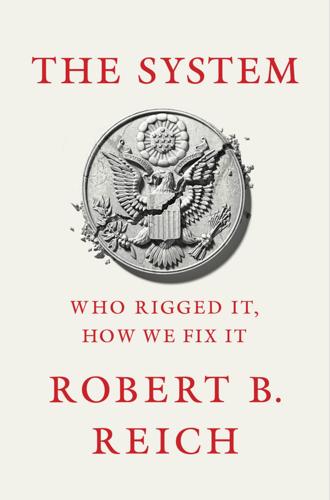
The System: Who Rigged It, How We Fix It
by
Robert B. Reich
Published 24 Mar 2020
Despite its avowed concern about climate change, Google has made large donations to some of the most notorious climate change deniers in Washington, including the Heartland Institute, an anti-science group that has attacked teenage activist Greta Thunberg for “climate delusion hysterics,” and Heritage Action, which has alleged that the Paris climate accord is supported by “cosmopolitan elites.” Presumably, Google has made these donations because such groups don’t want government intruding on corporate America, especially Google. I’m aware of a nonprofit devoted to voting rights that decided not to launch a campaign against big money in politics for fear of alienating the wealthy donors it courts, and a liberal-leaning Washington think tank that released a study on inequality that failed to mention the role big corporations and Wall Street have played in weakening the nation’s labor and antitrust laws, presumably because the think tank didn’t want to antagonize its corporate and Wall Street donors.
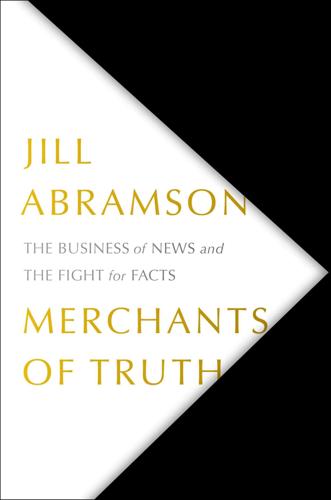
Merchants of Truth: The Business of News and the Fight for Facts
by
Jill Abramson
Published 5 Feb 2019
She was hired to be the environment correspondent, though she had no background in environmental policy. The day I met her she was dressed in a hip blue jacket with matching blue desert boots, her hair closely buzzed. Biracial, she identified as black. She almost missed one of the most important stories on her beat, President Trump’s withdrawal from the Paris climate accord, because she had just gotten married and was still on her honeymoon. She rushed back and managed to get a story on the air, one that focused on the implications for the climate, not Trump or the political angle. Another new hire was the blond and soft-spoken Elle Reeve. She’d interviewed with Tyrangiel at Bloomberg, and he called her to audition.
…
paid subscriptions to, 4–5, 193–94, 276–77, 373, 389, 397, 416, 425, 427 separate editorial staff of, 196 “Snow Fall” story on, 204–5, 211 traffic to, 373 “Trump bump” and, 397 2016 election and, 372 Upshot blog of, 248, 290 virtual reality and, 398–99 Nguyen, Dao, 113, 114, 116, 121, 144 Nieman Journalism Lab, 119, 124, 134 Nike: Peretti’s emails with, 16–17, 19 viral Ronaldinho ad of, 53 Nir, Sarah Maslin, 210 Nisenholtz, Martin, 73–74, 192, 194 Nixon, Richard, 225, 226 Nolan, Hamilton, 138, 164, 348 North Face, 161 Notopoulos, Katie, 130 Nunberg, Sam, 306 NYTimes.com, see New York Times, websites of Obama, Barack, 210, 252, 300, 323 BuzzFeed’s native advertising campaign for, 136–37 Shane Smith’s interview with, 179, 180 Trump’s lies about, 309 in 2012 election, 136 Obama, Michelle, 179 Obama administration, criminal leak investigations by, 9, 214 Occupy movement, 130 Ochs, Adolph, 77, 429 O’Keefe, James, 286, 338 Old Blue Last (London pub), 153 Oliver, John, 389 Onion, 119 Oregonian, 246 O’Reilly, Bill, 80, 361, 392 Ostrovsky, Simon, 179, 355 kidnapping of, 174, 357 Palmieri, Jennifer, 380–81 Panic 2012 (Hastings), 133 Paris climate accord, 351 Parker, Ashley, 376–77, 406, 407, 411 Pearl, Danny, murder of, 208, 209 Pentagon Papers, 64, 82, 225, 326, 402 Peretsman, Nancy, 257, 258 Peretti, Chelsea, 13, 17, 19, 107 Peretti, Jonah, 4, 8, 219, 242, 283 Ben Smith hired as head of BuzzFeed news department by, 127–28 Blackpeopleloveus.com and, 17, 19 on BuzzFeed mix of entertainment and news, 132 BuzzFeed started by, see BuzzFeed on Chartbeat, 247 childhood and adolescence of, 13–14 computing as early interest of, 14 contagious media and, 18, 285 and doubts about BuzzFeed’s entry into news industry, 143–44 dyslexia of, 13 explosion of social media anticipated by, 30–31, 103 at Eyebeam, 18–19 Facebook criticized by, 343 Facebook worldview adopted by, 103–4 and gaming of Google search system, 29, 30 as Huffington Post cofounder, 21–25, 29, 30, 33, 285 importance of BuzzFeed News to, 317 Lerer and, 20–21 at MIT Media Lab, 16, 18 Nike Sweatshop meme inadvertently created by, 16–17, 19 as proselytizer for machine learning, 330–31 reaction buttons introduced by, 302–3 Rejection Line meme created by, 17, 19 in search for new revenue sources, 344 Steele dossier publication approved by, 323, 328 as teacher at Isidore Newman School, 14–15 as untroubled by blurring of advertising and news content, 121–22, 137 and use of Facebook “sentiment data,” 304 video production as focus of, 328–29 virality and, see virality wealth of, 123 Perpich, David, 193, 394–96, 398 PETA, 38 Pew Foundation, 182 Philadelphia Daily News, 233 Piano, Renzo, 81, 187 Pilhofer, Aron, 197 Pincus, Walter, 92–93 Pinterest, 178 Plame, Valerie, 93 Playboy, 42 Plepler, Richard, 178, 179, 180 and Vice News Tonight, 350, 353, 355 Plunkett, Chuck, 424 Podesta, John, 381 hacked emails of, 319, 381 Politically Incorrect (TV show), 44 political polarization: Facebook and, 273–74, 279–80, 281, 282–83, 312 right and, 282–83 Politico, 98–99, 124, 130, 140, 144, 189, 197, 230, 237, 251, 263, 374, 406 Ben Smith at, 126, 131, 134 critical article on Abramson in, 211 “Salongate” story broken by, 240, 241 Powell, Colin, 93 Powers That Be, The (Halberstam), 3–4 Poynter Institute, 95, 109, 140, 309, 310 Prakash, Shailesh, 263, 266–67, 413–14 press, freedom of, see First Amendment Preston, Julia, 402 Priest, Dana, 233 ProPublica, 77, 141, 142, 237, 389, 408 Proud Boys, 368 Pruitt, Scott, 390 psychographics (psychometrics), 278–79, 286 Pulitzer Prizes, 3, 4, 82, 211, 233, 268, 392, 411, 416, 426 100th anniversary celebration of, 1–5, 402 Punch, Tom, 160 Purdy, Matt, 205, 378 Putin, Vladimir, 289 quality news, 9–10 see also investigative journalism; long-form journalism Quest Education Corporation, 90 Raines, Howell, 67, 78, 184, 186, 217, 385, 429 Rather, Dan, 60 Rattner, Steven, 65, 73, 188, 189 Ravitch, Joe, 154 Reagan’s War (film), 285 Rebel Media, 368 Reddit, 313 Redstone, Sumner, 154 Reeve, Elle, 351–52 Charlottesville violence covered by, 353–55 Regret the Error (blog), 310 Reid, Harry, 384 Reines, Philippe, 133 Rejection Line meme, 17, 19 relatability, virality and, 115–16 Remnick, David, 88, 209 Reporters Committee for Freedom of the Press, 327, 427 Republican National Convention (2016), 315–16 Republicans, news media distrusted by, 386–87 Reston, James, 397 Rezaian, Jason, 407 Rice, Condoleezza, 79 Rich, Frank, 75 Richardson, Terry, 59, 176 Ricks, Thomas, 93, 230 Risen, James, 92, 215, 384, 402 Roberts, Jim, 135 Robinson, Janet, 86, 193 Abramson’s relationship with, 198, 199, 202 business-side job cuts by, 191 news staff cuts resisted by, 70–71, 186 paywall on website urged by, 192, 193 print advertising department protected by, 73 Sulzberger’s firing of, 202–3 as Times’s CEO, 62–63, 65 Rodman, Dennis, 167 Rogers Communications, 358, 365 Rolling Stone, 130, 133 Romney, Mitt, in 2012 election, 129, 131–32, 136 Ronaldinho, viral Nike ad of, 53 Rose, Charlie, 417, 425 Rosen, Jay, 7, 76 Rosenthal, Abe, 75, 78, 185, 193, 390 Rosenthal, Andrew, 78, 192–93, 215 Rosenthal, Elisabeth, 402 Rotten, Johnny, 43 Rovere, Richard, 4 /r/The_Donald (subreddit), 405 Rubin, Alissa, 209–10 Rubio, Marco, 132 Run-Up, The (podcast), 370, 372–74, 375 Russia: Trump’s business connections with, 383–84 2016 election interference of, 289, 326, 341–42, 381, 382, 383, 420 Rutenberg, Jim, 374 Ryan, Carolyn, 370, 371, 374, 378, 379 Ryan, Fred, 98, 263, 264, 403–4 as Post publisher, 263–64, 430–34 St.
…
“Punch,” 81, 202 Sulzberger, Willa, 430 Sulzberger-Ochs family, 261, 429 commitment to quality journalism of, 225–26 rivalries among, 394 stock dividends forgone by, 75 super-sharers, 111–12 Supreme Court, U.S., Obamacare decision of, 212 Swisher, Kara, 240 Syed, Nabiha, 323, 326–28, 427 Syria, foreign correspondents in, 174–75, 208–9 Szalwinski, Richard, 44–46 T (Times style magazine), 210 Talese, Gay, 74–75 Talking Points Memo (blog), 73, 94, 129 Tapper, Jake, 325 T Brand Studio, 163, 347, 367, 393, 399–400, 401 television news: aging audience for, 60 celebrity stories on, 60 decline of public trust in, 60 1960s high point of, 59–60 staff cuts by, 94 Thiel, Peter, 273, 326 Thomas, Clarence, 196 Thomas, Shawna, 351 Thompson, Hunter S., 133 Thompson, Marilyn, 417 and gutting of McConnell story, 236 as Lexington Herald-Leader editor, 235–36 long-form journalism as strength of, 233–37 peripatetic career of, 235–37 as Post reporter and editor, 233–35 Strom Thurmond exposé by, 234–35 Thompson, Mark, 215, 389–90, 395, 398 Abramson’s relationship with, 212–14, 215 and blurring of line between news and business departments, 218 digital innovation pushed by, 398 Gibson’s hiring encouraged by, 220–21 named Times CEO, 203, 212 native advertising embraced by, 214 office downsized by, 397 paid products developed by, 213, 214, 215, 218 Savile scandal and, 214 “Times Innovation Report” and, 400 Times websites’ international reach expanded by, 398 Thune, John, 293 Thurmond, Strom, 234–35 Time, 30 Time.com, 245 Time Inc., 3–4 “Times Innovation Report,” 218–20, 394, 400 Times Insider, 250 Times Journeys, 401 Times Mirror, 67, 71 Times Select, 68, 74, 191–92, 193 Time Warner, 348 Title IV student loans, 91 Today (TV show), 146 Todd, Chuck, 339 Too Big to Fail (Sorkin), 190 Tozzi, Lisa, 141, 315 Tracy, Marc, 135 “traffic farms,” 282–83 Tremaine, Jeff, 51 Trend-Detector, 34, 38 Tribune Company, 71, 88, 182 Tronc, 414, 425 Trump, Donald: Access Hollywood tape and, 370, 377 Bezos and Amazon attacked by, 418–19, 426 border wall and, 293 on BuzzFeed’s publication of Steele dossier, 324 charitable giving claims of, 408–11 and Charlottesville violence, 354–55 election of, 224, 370–71 entertainment value of, 288 “fake news” term co-opted by, 340 Haberman’s relationship with, 388–89 as media creature, 6–7 Muslim country travel ban of, 326–27 political rise of, 288–89, 305 Post investigations of, 407–8, 426 Russian business connections of, 383–84 sexual harassment charges against, 370 Steele dossier on, 323–24 Times coverage originally craved by, 388 Times investigations of, 376, 382, 426 tweets by, 386, 387–88, 405, 418 in 2014 BuzzFeed interview, 305–6 in war on news media, 2, 7, 9, 376, 387–89, 426–27 in withdrawal from Paris climate accord, 351 Trump, Donald, in 2016 election campaign, 279 Bannon and, 298 Breitbart News and, 289–90 BuzzFeed’s coverage of, 302, 305–6, 313–14 “crooked” Hillary rants of, 377, 379 Facebook psychographic data used by, 298 Facebook’s Dark Post tool used by, 299 fake news in support of, 277, 296, 297, 299–300, 315 journalists banned from rallies of, 307–8 media coverage monopolized by, 290, 308 voter suppression operations of, 299 Trump administration: “alternative facts” and, 339–40 Post investigations of, 416 Trump Foundation: New York State lawsuit against, 411 supposed charitable giving by, 408–11, 419 Try Guys videos, 335 Tumblr, 145 Tumulty, Karen, 249, 406 Turner, Ted, 125 Twitter, 53, 130, 237, 288, 418 BuzzFeed’s morning news show on, 343, 345 #dressgate on, 145 launch of, 32 as news platform, 291 political conversation on, 126–27, 131 Tyrangiel, Josh, 350–51, 366–67 Upshot (Times blog), 248, 290 Upworthy, 414, 415 VandeHei, Jim, 97–99 Vanity Fair, 99, 187, 223 Variety, 176 Varney, Stuart, 420 Vea snacks, 393 Veles, Macedonia, 297 Veltroni, Martina, 359–61, 362 verticals, content organized by: at BuzzFeed, 123, 132, 342–43 at Vice, 161–62, 164, 167–68 Viacom, 57, 153, 154 Vice (HBO weekly show), 167, 178–80, 347, 350, 355, 366, 426 Emmy and Peabody awards won by, 179 Mojica as overseer of, 357 Vice (magazine), 147 advertisers’ wariness of, 47, 49–50 circulation growth of, 48, 56, 150 founded as Voice of Montreal, 43–45 Morton’s first articles for, 150 Morton’s immersion stories for, 151–52 9/11 attack and, 49 “Racist Issue” of, 46 in relocation to New York, 45 transgressive ethos of, 46, 47, 48–49, 148 Vice Broadcasting System (VBS.tv), 56–57, 154 see also Vice Media, video unit of Vice Canada, 358–59, 365 Vice Guide to Travel, The (video series), 57–58, 152 Viceland, 355, 359, 364, 365, 366, 367 Vice Media, 4, 8 ad agency of, see Virtue advertising revenues of, 177, 178, 347 blurring of line between advertising and news at, 158–66, 367 clients’ censorship of stories at, 164–65 coming-of-age of, 150–51 content creation as focus of, 154 Creators Project of, 162–63, 347 ethical standards as lacking at, 147, 171–72 extravagant spending on events and drugs by, 175 as failing to make lasting impact on visual journalism, 426 financial problems of, 349–50, 365 Fred Stanton Award won by, 180 Freston as full-time advisor to, 154–55 Gross Jar at, 149–50 institutionalized sexism at, 176–77, 348–49, 362, 363–64 internal disarray of, 348 investments in, 154, 177, 349 investor and advertiser defections from, 365–66 Jonze’s repositioning of, as video brand, 50 as lacking legitimacy as news brand, 158 licensing fees charged by, 177, 178, 180, 347, 367 low wages paid by, 175, 348, 357 McInnes’s exit from, 58, 181, 369 Morton hired by, 147–48 Morton named website editor of, 150 need for continuing growth at, 169, 180 new business model of, 160 nondisclosure agreements demanded by, 177, 349, 360, 361, 368–69 out-of-court settlements paid by, 361, 363 overseas revenues of, 178, 347, 367 prized youth demographic of, 347 quality news and, 10 record label of, see Vice Records reporters’ safety training ignored by, 172–73 retail stores of, 46, 150 sexist culture of, 59 sexual harassment at, 349, 361–65, 368, 426 steep learning curve of, 5 Szalwinski and, 45–46, 47 tension between transgressive ethos and corporate goals of, 59 traditional news media challenged by, 2, 4, 6 unionization of, 349 valuation of, 177, 329, 349, 365 Veltroni’s lawsuit against, 361, 362 verticals of, 161–62, 164, 167–68 Vice Media, video unit of, 329 “Chicago Interrupted” documentary of, 166 controversial Liberia documentary of, 169–70 “cool” as operative word at, 147 enormous output of, 346–47, 367 growing audience of, 59 “Heavy Metal in Baghdad” documentary of, 166, 173 as immersive journalism, 155–58, 174 “Islamic State” documentary of, 174–75 Jonze in creation of, 56–58, 152 North Korean documentaries of, 166–67 risks taken by reporters of, 172–75 Times profile of, 60–61 Vice Guide to Travel series of, 152 YouTube as platform for, 153–54, 158, 178, 368 see also Vice News Vice News, 178, 350 alt-right investigations of, 346 awards won by, 356 Charlottesville violence covered by, 353–55 Emmys won by, 355 HBO shows of, see Vice (HBO weekly show); Vice News Tonight as lacking connection to Washington insiders, 352 lack of security training at, 357–58 as loss leader, 357 Mojica replaced by Tyrangiel as head of, 350, 352, 356, 360 overtaking CNN as goal of, 346, 348, 369 Shane Smith’s vision for, 346, 369 and Trump’s election, 353 Vice News Tonight (HBO nightly show), 350–55, 366 Vice Records, 46, 56, 150, 155 video, pivot to, 328–29, 347 BuzzFeed and, 332, 336 Facebook and, 332 Vice and, 50 Vietnam Moratorium, 84 Vietnam War, 4 Village Voice, 130, 141 Vine, 332 virality, 76 as BuzzFeed’s organizing logic, 35–36, 111–12, 113–19 cats and, 36 evangelism and, 115 Marlow and, 16 native advertising and, 122–23 news media transformed by, 13 Nguyen and, 113–14 Peretti’s early experiments with, 8, 16–19 political dimension of, 18 relatability and, 115–16 Watts and, 15–16 see also contagious media Viral Rank, 35 Virtue (advertising agency), 158, 160–61, 165, 347, 369 Vladeck, Anne C., 217 Voice of Montreal, 43–45 in relocation to New York, see Vice (magazine) Volvo, 161 Vox, 239, 248, 266, 275, 405 Wallace, David Foster, 57, 168 Wall Street Journal, 64, 70, 159, 160, 189, 228, 349–50, 365, 375, 391 Abramson at, 195–96 as Chartbeat client, 245 expanded coverage of, 183 Facebook Instant Articles program eschewed by, 281 international reach of, 83 Murdoch’s acquisition of, 67, 183, 226, 229 paying digital readers of, 183, 192 Times’s rivalry with, 183 Wang, Peggy, 15, 37, 121 Warren, Denise, 215 Warrick, Joby, 92 Warzel, Charlie, 312–13, 320, 321, 338 Washington Post, 3–4, 66, 208, 220, 377, 381, 389, 391 Arc technology of, 267, 414 banned from Trump rallies, 308 Bezos’s expansion of news staff of, 404 Bezos’s purchase of, 1–2, 5, 257–61 blogs of, 23 broken business model of, 226 Buffett and, 83, 88 building scale emphasized by, 412 Chartbeat metrics used by, 245 classified advertising in, 83 Coll’s exit from, 88, 90 declining advertising revenues of, 8, 89, 254 declining reputation of, 251–52, 255–56 “Democracy Dies in Darkness” slogan of, 421 Don Graham era at, see Graham, Donald E.
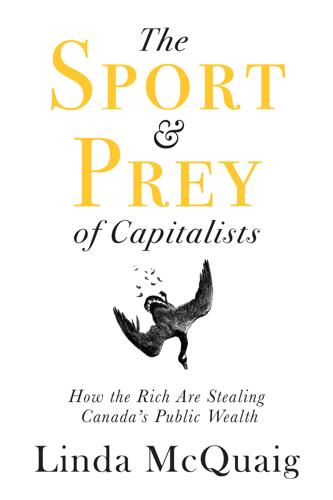
The Sport and Prey of Capitalists
by
Linda McQuaig
Published 30 Aug 2019
There’s definitely something of a contradiction, however, between Norway’s proactive approach in weaning its own citizens off fossil fuels and its eager production and sale of oil to the rest of the world. Greenpeace Norway has gone to court to stop the Norwegian government from issuing permits to drill in the Arctic, insisting that this amounts to a violation of Norway’s obligations under the Paris climate accord. So Norway’s environmental record is far from perfect. Still, even as an oil producer, Norway takes steps to be responsible, imposing an activist safety regime that empowers workers to shut down any practice they deem unsafe, thereby reducing the risk of oil spills as well as protecting workers.
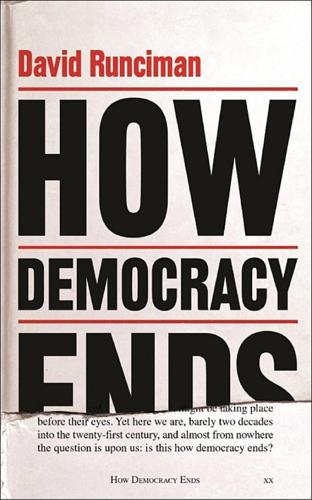
How Democracy Ends
by
David Runciman
Published 9 May 2018
As Arendt implied, modern politics makes it possible to be in a manic state and to be in a trance at the same time. When it comes to climate change, democracy increasingly looks like the spell, not the cure. The arrival of Trump in the White House, and his professed wish to take the United States out of the Paris climate accord (leaving the country in a minority of one) has redirected some of the political energy against the doubters. But it has done nothing to dispel the miasma of mistrust. If and when the fictions of environmental disaster turn to fact, democratic politics can be expected to snap out of it. That is one of democracy’s strengths: chaos and violence bring out the best in it.
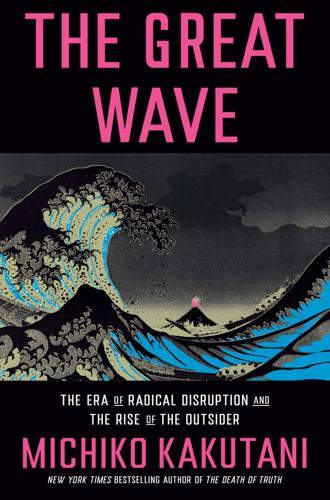
The Great Wave: The Era of Radical Disruption and the Rise of the Outsider
by
Michiko Kakutani
Published 20 Feb 2024
After the Supreme Court struck down a century-old concealed carry law in the summer of 2022, governors and legislatures in blue states including New York, California, and New Jersey began looking at ways to rewrite their laws that would enable them to still restrict the use of firearms—including background checks, a ban on guns without serial numbers, age limits on the purchase of semiautomatic weapons, and location-based rulings that would prohibit people from carrying guns, say, in schools and subways. In 2017, when President Trump announced he was pulling the United States out of the Paris climate accords and began rolling back Obama-era policies designed to protect the environment, some states began pushing back. New York, California, Washington, and Virginia, for instance, took legislative and executive actions to implement clean energy policies and reduce greenhouse gas emissions. Cities, too, joined the effort.
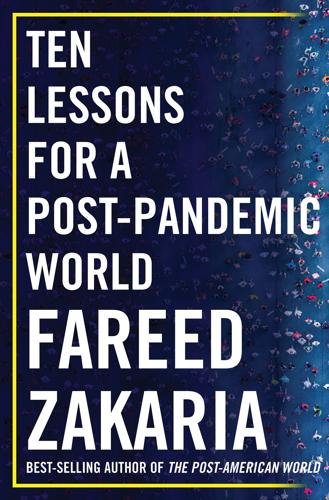
Ten Lessons for a Post-Pandemic World
by
Fareed Zakaria
Published 5 Oct 2020
Big, developed cities are beginning to think of themselves as independent actors on the world stage. As major metro areas have seen their economies and populations grow, mayors have sought to exercise greater political power at the national and even international levels. When President Trump announced his intention to withdraw the United States from the Paris climate accords in 2017, the leaders of Atlanta, Pittsburgh, New York, Chicago, Salt Lake City, and Los Angeles pushed ahead with the agreement anyway. Climate change, terrorism, and, yes, the pandemic have driven home the notion that cities face common challenges and should work together to tackle them. While the biggest cities receive much of the attention, a lot of the action is happening in smaller cities.
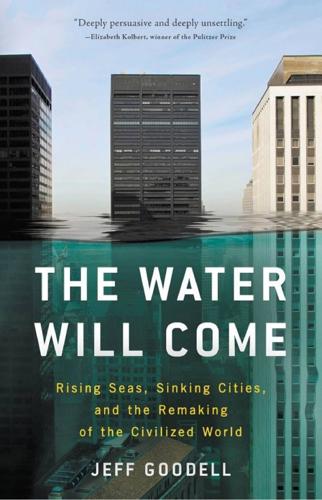
The Water Will Come: Rising Seas, Sinking Cities, and the Remaking of the Civilized World
by
Jeff Goodell
Published 23 Oct 2017
The cavernous room was one of several at Le Bourget that had been remodeled for the Paris climate talks, and now, on the final night of the negotiations, it was packed with people from virtually every nation in the world, a sea of black and brown and white faces, some dressed in business attire, some in ceremonial robes and gowns. Standing among them, I watched French president François Hollande stand at the podium in the front of the hall and slam the gavel down, marking formal acceptance of the 2015 Paris climate accord. Everyone cheered. Some cried. To my surprise, I hugged the person next to me, a young Asian woman I had never met or talked to. I felt her pull away, perhaps shocked that a stranger would grab her so suddenly, but then she hugged me back. I never learned her name or even what country she represented, but our shared expression of the power of the moment was genuine.
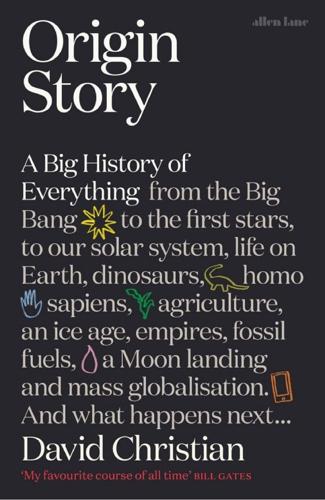
Origin Story: A Big History of Everything
by
David Christian
Published 21 May 2018
Finally, in a capitalist world, most enterprises are governed by the need to make profits, and at present profit-making all too often points in different directions from the quest for sustainability. So what chance is there of an emerging global consensus on the importance of the quest? One of the most hopeful signs is the speed with which a scientific consensus has been reached, reflected in documents such as the UN sustainability goals and the Paris climate accords. Thirty years ago, such declarations would have been inconceivable. We may also be close to an economic tipping point at which the quest itself turns out to be profitable and compatible with an evolving global capitalism. If that happens, the colossal innovative and commercial energies of modern capitalism and the power of governments that depend on the wealth generated by capitalism may swing behind the quest and give it the sort of boost that capitalist governments gave to the industrial revolution.
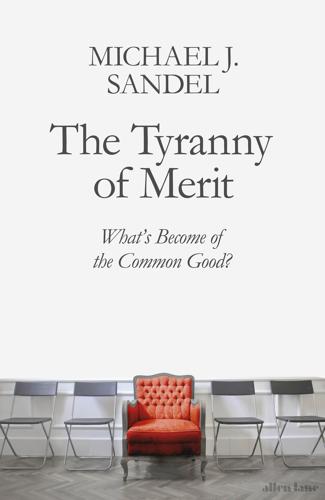
The Tyranny of Merit: What’s Become of the Common Good?
by
Michael J. Sandel
Published 9 Sep 2020
But the “elephant” in the room was climate change. What Obama meant is that it is hard to have a reasoned debate about climate change with people who deny its existence, or the human role in bringing it about. Obama surely had in mind that his successor, abetted by climate change deniers, had withdrawn the United States from the Paris climate accord that he, Obama, had signed. He attributed this not only to ideological disagreement but to a rejection of science by Trump and his Republican supporters. In fact, the slogan “I believe in science” has become a rallying cry for Democrats. Hillary Clinton proclaimed it in her speech accepting the nomination in 2016, Obama used it as president, and a number of candidates seeking the 2020 presidential nomination made it a refrain on the campaign trail.

The Raging 2020s: Companies, Countries, People - and the Fight for Our Future
by
Alec Ross
Published 13 Sep 2021
Companies respond to incentives, so we need to provide incentives for them to stop the race to the bottom on everything from environmental damage to workers’ rights. Former Bank of England governor Mark Carney has suggested that this approach be extended to executive compensation as well, saying that banks should link executive pay to climate risk management. The more a company does to contribute to goals set out in the Paris climate accord, the more its executives get paid. Economic inequality and environmental destruction are concrete problems, and addressing them this decade and beyond will require equally concrete strategies. For a company to actually understand the positive and negative impacts of its decisions, it needs data.
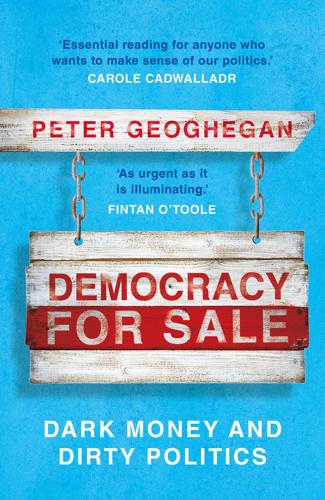
Democracy for Sale: Dark Money and Dirty Politics
by
Peter Geoghegan
Published 2 Jan 2020
The deregulation of Ronald Reagan and George H. and George W. Bush often came straight from blueprints drawn up by libertarian institutes. Donald Trump campaigned to “drain the swamp”; in office he rolled back roughly 85 environmental rules and regulations in his first two years.9 The US pulled out of the Paris climate accord and loosened domestic laws on toxic air pollution. These moves were applauded by the foundations and very rich activists, like the Mercer family, who backed Trump’s 2016 campaign. Could Richard Fink’s dark money playbook travel across the Atlantic? In many ways, it already has. After Washington, London is home to the largest concentration of libertarian think tanks.
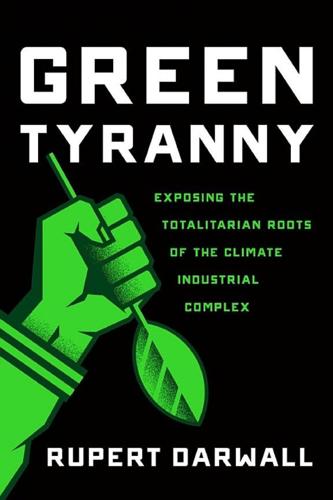
Green Tyranny: Exposing the Totalitarian Roots of the Climate Industrial Complex
by
Rupert Darwall
Published 2 Oct 2017
Uniquely, America’s Constitution and its separation of powers provide checks against it. This, ultimately, is what is at stake in the battle of Paris and the climate war. It is a fight for America’s soul. Notes 1Government of Italy, “Declaration of the Italy, Germany and France on the announcement of the USA to leave the Paris Climate accord,” June 1, 2017. 2Tom Steyer tweet, May 28, 2017, https://twitter.com/tomsteyer/status/869018773453291521 (accessed June 19, 2017). 3Bill McKibben, “The New Battle Plan for the Planet’s Climate Crisis,” Rolling Stone, January 24, 2017, http://www.rollingstone.com/politics/features/bill-mckibbens-battle-plan-for-the-planets-climate-crisis-w462680 (accessed June 19, 2017). 4Tom Steyer tweet, June 1, 2017, https://twitter.com/TomSteyer/status/870368866949488640 (accessed June 19, 2017).
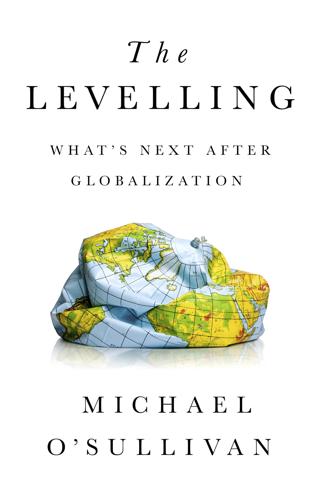
The Levelling: What’s Next After Globalization
by
Michael O’sullivan
Published 28 May 2019
Today it is worth considering the words of Norwegian statesman Gunnar Knudsen during the award ceremony (Roosevelt didn’t make it to the Nobel Foundation until 1910): “The United States of America was among the first to infuse the ideal of peace into practical politics. Peace and arbitration treaties have now been concluded between the United States and the governments of several countries.”17 Yet with America now pulling back from an internationalist stance—for example, recently cutting its contribution to the United Nations, pulling out of the Paris Climate Accord, effectively ignoring Latin America (e.g., ignoring the Venezuelan refugee crisis), degrading relations with neighbors and trading partners from Canada to the European Union, and maintaining ambivalent relations between the White House and Russia, to name just a few developments—it may fall to China to perform the role of underwriter of international public goods.
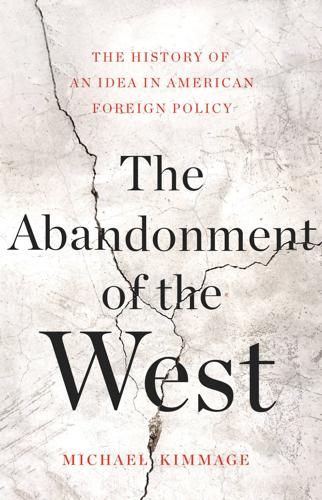
The Abandonment of the West
by
Michael Kimmage
Published 21 Apr 2020
According to Pew polling, Obama finished his presidency with global confidence in the United States at 64 percent and with the same percentage of global confidence in the American presidency.38 In President Obama’s two terms, the liberal international order made considerable advances. As a rules-based community of consensus, the EU existed because nationalism and balance-of-power approaches to diplomacy had been set aside. Two of the main initiatives of the Obama administration, pursued in tandem with the EU, were the Paris Climate Accords and the Iran nuclear deal. Both involved intricate negotiation; both required the highest degree of multilateralism; and both were proof that an international society could be used to address policy challenges on par with global warming and nuclear proliferation. Many of the Europeans who had opposed the Iraq War were delighted to encounter a different style of leadership in President Obama, one that seemed intrinsically more European, though it was as much Wilsonian or Achesonian as it was twenty-first-century European.
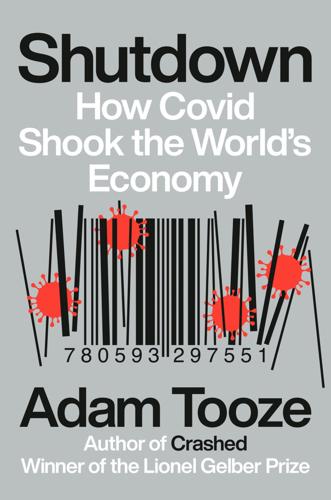
Shutdown: How COVID Shook the World's Economy
by
Adam Tooze
Published 15 Nov 2021
The same moment saw a sudden surge in geopolitical tension with Russia. After four years of frantic firefighting on both sides of the Atlantic, there was a brief period of stabilization between 2012 and 2014, demarcated by Draghi’s “whatever it takes,” Obama’s reelection, and the run-up to the Paris climate accords. But this stabilization proved short-lived. Between 2014 and 2016 the status quo was rocked by the Ukraine crisis, the commodity price collapse, the Syrian refugee crisis, Greece’s near default, China’s near-miss financial meltdown, Bernie Sanders’s unexpectedly strong challenge to Hillary Clinton, Brexit, Trump’s victory, and the Gilets Jaunes explosion in France.
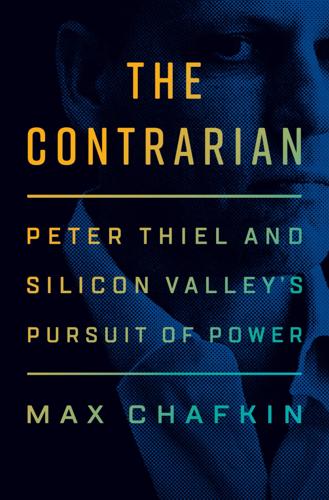
The Contrarian: Peter Thiel and Silicon Valley's Pursuit of Power
by
Max Chafkin
Published 14 Sep 2021
There were other issues of concern that the tech CEOs could have raised with the soon-to-be most powerful man in the world. They might have questioned him about his threats to use antitrust law to break them up, or they could have asked if he realized how damaging his anti-immigrant rhetoric was to their existing workforces. They might have brought up Trump’s promise to withdraw from the Paris climate accord, or about his plans, which he’d first tweeted about in 2014, to end net neutrality—repealing a law that many in the room regarded as fundamental to the modern internet—or about the numerous ways that Trump had seemed, during the campaign, hostile to technology, science, and the future. But the room ignored all of that, steering the conversation to Trump’s signature issue, China.
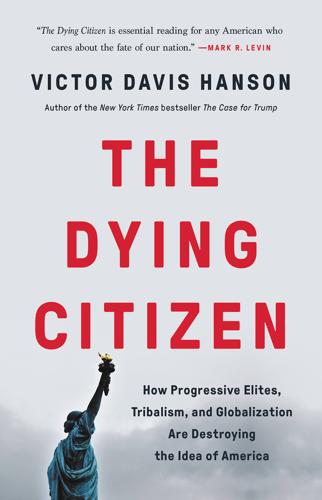
The Dying Citizen: How Progressive Elites, Tribalism, and Globalization Are Destroying the Idea of America
by
Victor Davis Hanson
Published 15 Nov 2021
But it has arguably lost “police actions,” like the troubled Vietnam intervention and withdrawal and the 1983–1984 misadventure in Lebanon, neither of which were always supported by the citizenry. Well beyond the redefinition of war making, recent administrations have also more often tried to circumvent the constitutional right of the Senate to ratify treaties, most recently in the case of the so-called Iran Deal (Joint Comprehensive Plan of Action) and the Paris Climate Accord. In fact, in 2015, the Obama administration proposed shared national climate-change commitments with the Chinese government that were to be sent on to the United Nations as a veritable treaty without need for Senate ratification. The administration was not shy about abrogating the Constitution on grounds that the Senate would be essentially unqualified to consult with the president about or eventually ratify the treaty or would illogically oppose the entire agreement.
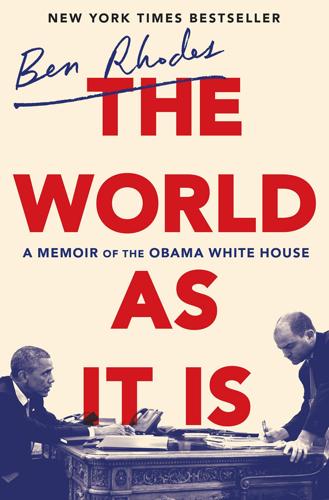
The World as It Is: A Memoir of the Obama White House
by
Ben Rhodes
Published 4 Jun 2018
NATO patrolled the skies over Estonia. Mohamed Morsi sat in an Egyptian prison cell. American-backed forces inched closer to Raqqa. A compound once occupied by Osama bin Laden in Abbottabad was no more. American troops guarded the perimeter of Bagram Airfield. Scientists researched new methods to meet the targets set by the Paris climate accord. Colombian guerrillas planned to turn in their weapons. A Cuban shopkeeper took stock of his inventory. A young person in Kenya who had participated in a U.S. exchange program went to work building a community organization back home. The congregants of a black church in Charleston accepted God’s grace.
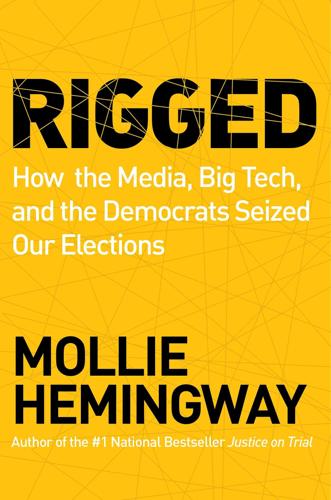
Rigged: How the Media, Big Tech, and the Democrats Seized Our Elections
by
Mollie Hemingway
Published 11 Oct 2021
Unlike so many Republican politicians who claim they will govern as conservative during Republican primaries but move to the left for the general campaign and in office, Trump honored his stated commitment to conservative policies. He appointed conservative judges and justices, exited from the Paris climate accord, led a massive deregulatory effort, got the economy roaring, didn’t start any new wars, and aggressively defended American interests abroad. His actions earned the support of the party’s voters. Despite these policy accomplishments, or in some cases because of them, powerful elements of the Republican Party and conservative media establishment continued to resist his presidency.
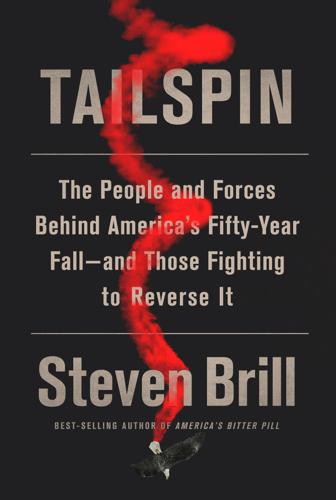
Tailspin: The People and Forces Behind America's Fifty-Year Fall--And Those Fighting to Reverse It
by
Steven Brill
Published 28 May 2018
In 2009, energy industry donors, led by David and Charles Koch, who own energy giant Koch Industries, began pouring money into candidates’ campaigns almost solely on the basis of their willingness to deny climate science and even block solutions that had been championed by many Republicans—such as cap and trade, a plan to encourage clean energy by allowing corporations to trade carbon emissions credits and debits. As a result, when President Trump withdrew from the Paris climate accords in 2017, most Republicans were solidly behind him, even as headlines related to the warming planet—flooding in southeast Florida, abnormally severe hurricanes in the South, droughts and apocalyptic fires in the Southwest and West—were starting to become a staple of the day’s news. True, a coalition that included some major oil companies as well as environmental groups had formed after the Paris accords withdrawal to push for a carbon tax; and many American states, cities, and corporations were proceeding with their own climate initiatives.
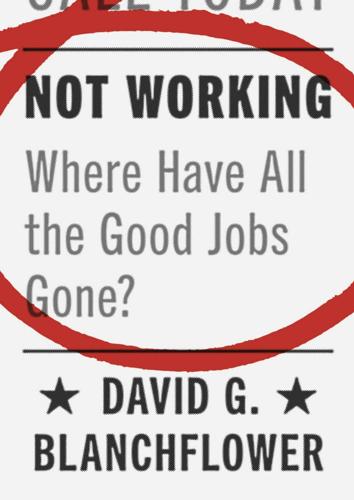
Not Working: Where Have All the Good Jobs Gone?
by
David G. Blanchflower
Published 12 Apr 2021
See out of labor force (OLF) cohort Nowotny, Ewald, 308, 310 numeracy, 34 Obama, Barack, 15, 16, 24, 101, 267–68, 292 obesity, 7, 77, 218, 223–24, 267, 274 Ocasio-Cortez, Alexandria, 343 Office for Budgetary Responsibility (OBR), 166–67 Office for National Statistics (ONS), 31, 66, 67 Ohio, 23, 24, 236, 265, 268, 288, 290 oil prices, 83 opioid abuse, 214, 221; deaths from, 7, 217, 229, 236; economic decline linked to, 36; inefficacy of, 216–17; in rural areas, 231, 235; voting behavior linked to, 24 Orban, Victor, 283 Oregon, 193 O’Reilly, Bill, 324 Organization for Economic Co-operation and Development (OECD), 18, 205, 255–56, 330; inequality measured by, 105, 110–11; long-term unemployment measured by, 40, 41; mobility measured by, 72–73; participation rates measured by, 94, 100; real earnings measured by, 59, 60–61; wage growth measured by, 48, 58, 59 Ormerod, Paul, 22 Orwell, George, 10, 46, 270 Osborne, George, 172, 175, 314, 327–28 Oswald, Andrew J., 142, 182, 225; housing market research by, 88, 90–91, 94, 145; life satisfaction research by, 115, 218, 225, 227, 229; unemployment research by, 71, 88 out of labor force (OLF) cohort, 16, 20, 21, 41, 70, 95, 99; health conditions among, 219; time use by, 26–27 outsourcing, 56 Overberg, Paul, 234 overemployment, 118, 121, 133, 135, 140, 146; during Great Recession, 144–45; wage gains linked to, 142 Ozimek, Adam, 169 Paddison, Laura, 343 paper industry, 23 Paris climate accord, 23 participation rate, 18–19, 20, 25–26, 39, 69, 94–101, 305–6; inequality linked to, 105 part-time employment, 6, 35, 49, 54, 69, 206, 208; in academia, 343–44; industries dependent on, 127; measurement of, 118; wage penalty linked to, 128. See also flexible work schedules; gig economy; self-employment part-time for economic reasons (PTFER) cohort, 118, 126, 129–32 part-timers who want full-time jobs (PTWFT), 118, 128, 129, 131–32 Patterson, Tom, 287 Paul, Karsten I., 43 Paulson, Henry, 163 Pecket, Elliott, 186–87 Peek, Liz, 16 Pencavel, John, 122, 123 Pennsylvania, 24, 236, 265, 288, 289 Pennycook, Matthew, 104 pensions, 32, 57, 62, 281, 338–39 Peri, Giovanni, 248–49 Personal Consumption Expenditures (PCE), 72 Peskowitz, Zachary, 326 Peters, William, 213 Phelps, Ned, 302–3 Phillips, William, 308, 309 Phillips curve, 208, 305, 307–11 Phone 4U, 335 Pickard, James, 272 Pidd, Helen, 273 Piketty, Thomas, 108, 109, 165, 337 Pinto, Sergio, 220 plastic surgery, 184 Poland, 81, 136; emigration from, 86, 93, 131, 251–54; Great Recession in, 79; underemployment in, 132; unemployment in, 134; wage growth in, 61 political correctness, 284, 324 Portes, Jonathan, 255, 342 Portugal, 38, 77, 78, 229; business and consumer confidence in, 196, 321; declining trust in, 321, 331; immigration to, 238; underemployment in, 136; unemployment in, 41, 132, 134 Posen, Adam, 70 Pouliakis, Konstantinos, 140 Powell, Jerome, 67–68, 304–5, 316 Pozuelo, Julia Ruiz, 226 Praet, Peter, 207 Pratt, Laura A., 224 Precis (clothing retailer), 209 Present Situation Index, 210 Pressman, Sarah D., 220 Prezzo (restaurant chain), 209 Prisoner Dilemma, 190 productivity, 63, 166–67; in housing-constrained cities, 91–92; immigration linked to, 255, 256; wage growth linked to, 64–65, 69, 84, 120, 121, 191, 302 progressive taxation, 342 protectionism, 114, 285 Protective Labor Market Institutions (PLMIs), 86 public schools, 72 Pulliam, Christopher, 74 Purchasing Manager Indices (PMIs), 194, 196, 205, 206 Putin, Vladimir, 293 Putnam, Robert, 329, 334 quantitative easing, 4, 62, 160, 162, 339 Quévat, Benjamin, 58 Quinones, Sam, 217 Rachman, Gideon, 282 Rapley, John, 165, 181, 193 Real Clear Politics (RCP), 321 recessions, 7, 191, 209 Rees, Daniel I., 36 Rees-Mogg, Jacob, 321 refugees, 7, 238, 241, 247, 250, 281, 325 Reinhart, Carmen, 3, 175 Reis, Ricardo, 178 rental housing, 34–35 rent controls, 85 replacement rate, 86 retirement age, 100, 278, 282–83, 339, 345, 346 return migration, 252 Rexnord Corporation, 290 Richards, Lindsay, 340 Rieder, Travis, 217 Rinne, Ulf, 57 Rivington Biscuits, 187 The Road to Wigan Pier (Orwell), 46, 270 Roberts, Russ, 169 Robinson, Eugene, 325 Rogoff, Kenneth, 3, 175 Romania, 93, 131, 251 Romney, Mitt, 24, 267, 268, 292 Rosen, Sherwin, 123 Rosengren, Eric, 153 Roth, Christopher, 340–41 Roubini, Nouriel, 152 Royal Bank of Scotland (RBS), 160, 162, 188, 335 RSA Insurance, 188 Rugaber, Christopher, 320 rules of thumb, 8 Russia, 281, 293, 330 Ryan, Richard W., 102 Ryanair, 188 Ryssdal, Kai, 67 S&P, 188 Sabadish, Natalie, 109 Sacerdote, Bruce, 71–72 Saez, Emmanuel, 108, 109–10, 337 Salvini, Matteo, 282 Sánchez, Aida Caldera, 92 Sanders, Bernie, 115, 343 Santander, 159, 281 Sarkozy, Nicolas, 344 Saunders, Michael, 100 savings, 75 Sawhill, Isabel V., 74 Schlagenhauf, Don, 74 Schwarz, Moises, 154 Seager, Ashley, 153–54 seasonal employment, 56 self-employment, 141; in Netherlands, 62, 364n26; primary vs. secondary, 140; in United Kingdom, 62, 83, 103–4, 140.
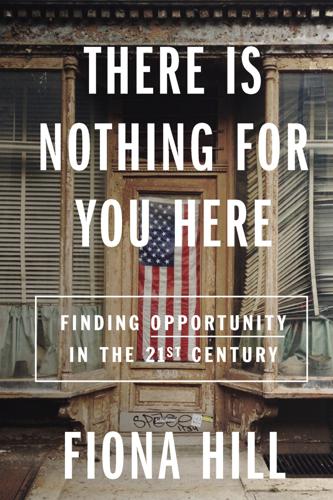
There Is Nothing for You Here: Finding Opportunity in the Twenty-First Century
by
Fiona Hill
Published 4 Oct 2021
Jobs meant votes. But saying he was going to do something proved easier than actually doing something. Between 2017 and 2020, Trump made good on some of the policy aspects of these promises to the men of coal and steel—although not the massive infrastructure projects. He pulled out of the Paris Climate Accord in June 2017. He then removed environmental regulations targeted at reducing the use of coal in American power plants and curbing the dumping of wastewater and other pollutants into rivers and streams. In 2018, Trump slapped 25 percent tariffs on Chinese and other international producers exporting cheap steel and aluminum to the United States.
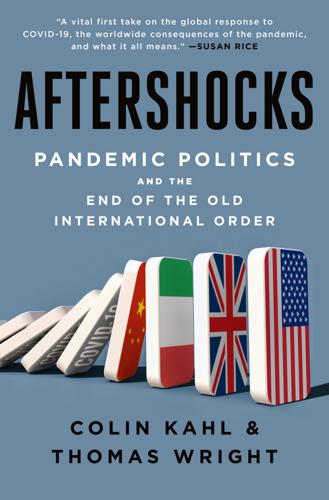
Aftershocks: Pandemic Politics and the End of the Old International Order
by
Colin Kahl
and
Thomas Wright
Published 23 Aug 2021
There is also the opportunity to restructure economies around the world in ways that would reduce risks associated with other existential transnational threats—especially, climate change. The global economic downturn produced by the pandemic created a brief reduction in carbon dioxide emissions, but despite the landmark 2015 Paris climate accord, emissions of carbon dioxide and other heat-trapping gases continue to increase. According to the Intergovernmental Panel on Climate Change, the international body of thousands of experts that represents the scientific consensus on climate, the world is on track to warm by around 3 degrees Celsius by the end of the century—a rate and magnitude of change that scientists warn could be cataclysmic.
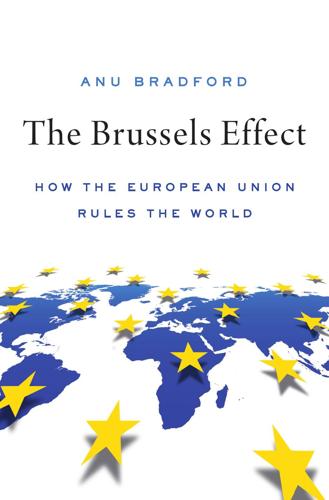
The Brussels Effect: How the European Union Rules the World
by
Anu Bradford
Published 14 Sep 2020
To be clear, the Brussels Effect alone will not revive multilateralism and restore institutionalized cooperation. Yet it offers a way to potentially mitigate the demise of international cooperation and institutions in some policy areas. It is true that the United States under President Trump may withhold its cooperation under NATO, refuse to sign trade agreements, pull the United States out of the Paris climate accord, or walk away from the Iran nuclear deal. Yet the US antiglobalist stance will not undermine the global regulations that the EU produces and passively externalizes via the Brussels Effect. The crises posed by a lack of international cooperation are hence most acute in non-economic areas where there are few substitutes to multilateralism, such as the common defense and critical deterrence provided by NATO or the efforts of the international community to contain nuclear ambitions of countries such as Iran or North Korea.
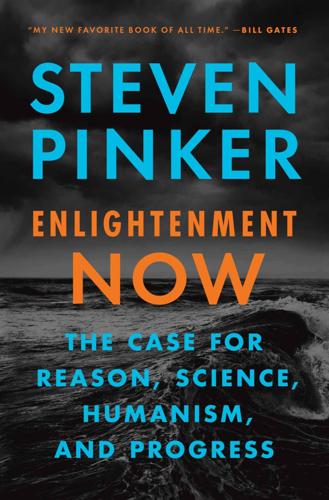
Enlightenment Now: The Case for Reason, Science, Humanism, and Progress
by
Steven Pinker
Published 13 Feb 2018
Then alien secular forces subverted this harmony and brought on decadence and degeneration. Only a heroic vanguard with memories of the old ways can restore the society to its golden age. * * * Lest you have lost the trail that connects this intellectual history to current events, bear in mind that in 2017 Trump decided to withdraw the United States from the Paris climate accord under pressure from Bannon, who convinced him that cooperating with other nations is a sign of surrender in the global contest for greatness.125 (Trump’s hostility to immigration and trade grew from the same roots.) With the stakes this high, it’s good to remind ourselves why the case for neo-theo-reactionary-populist nationalism is intellectually bankrupt.